Nokdu Flower: Episodes 1-2
by odilettante
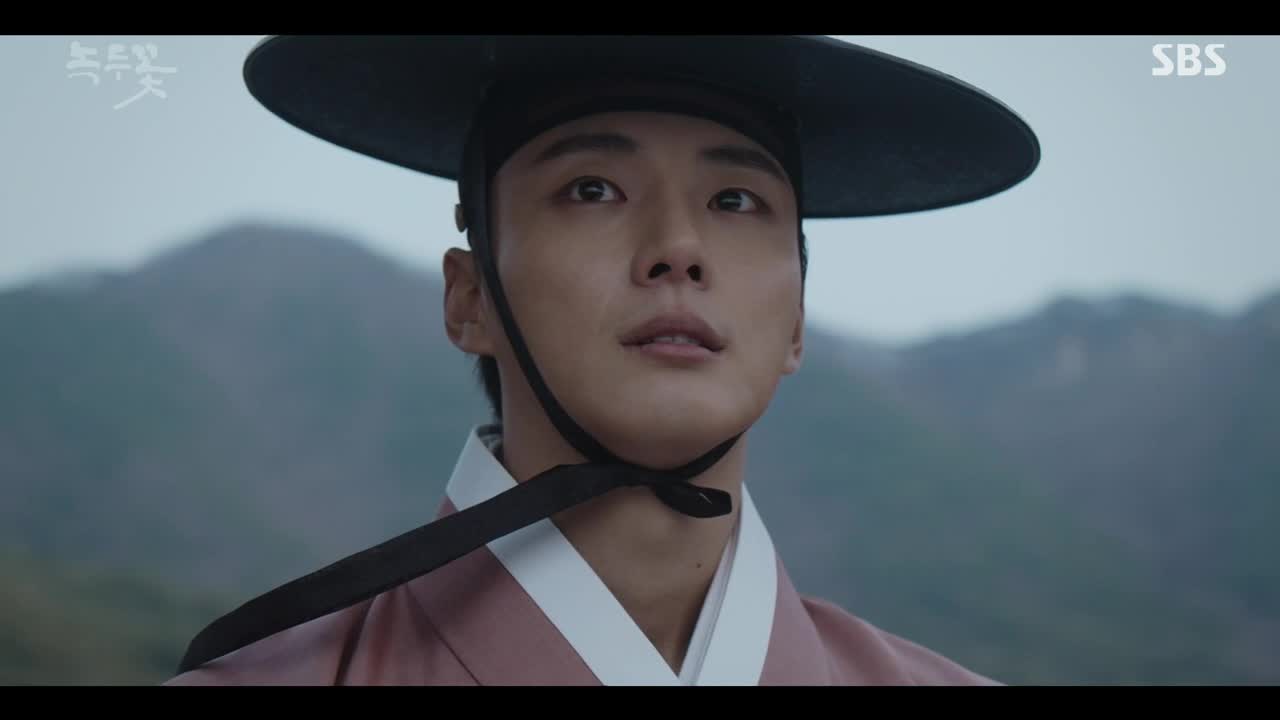
The latest historical drama from SBS is based on the Donghak Peasant Revolution at the end of the 19th century, when the peasants rose up to overthrow the corrupt government. The focus is on two brothers who end up on opposite sides of the war, and considering the premiere finished with a healthy viewer rating of 11.5%, it would seem that I’m not the only one excited to experience this epic saga.
EPISODES 1-2 RECAP
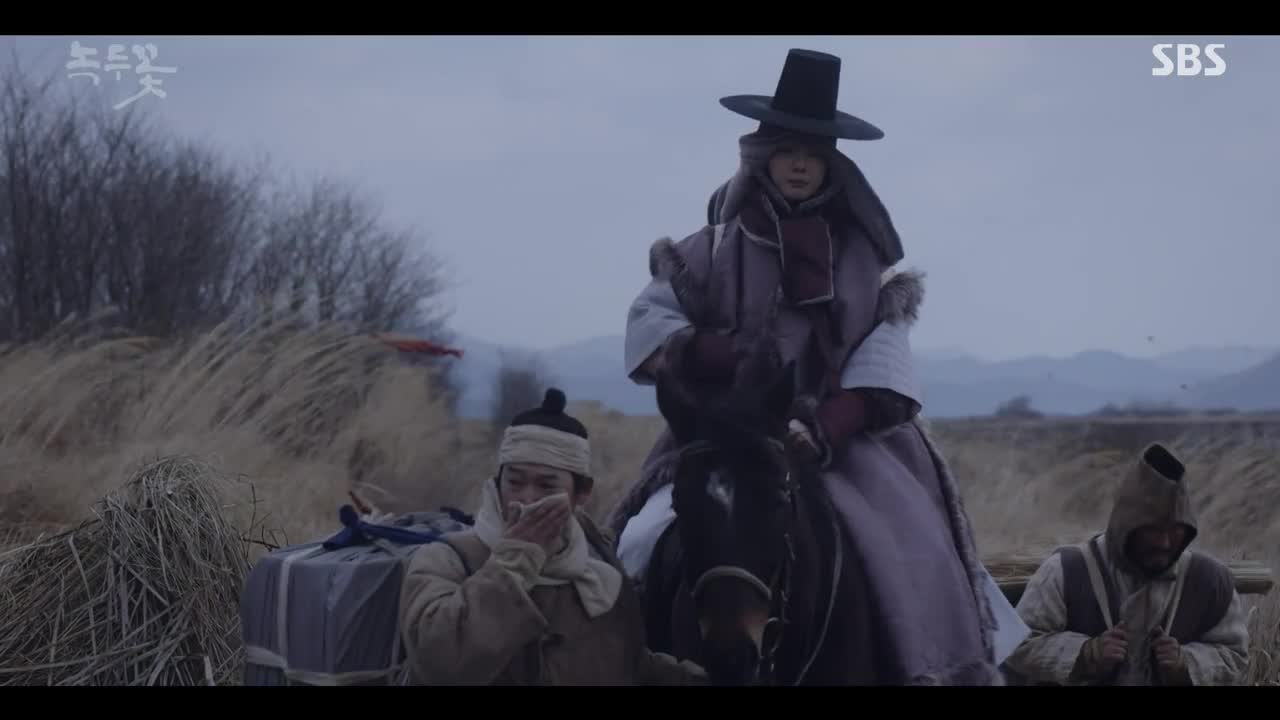
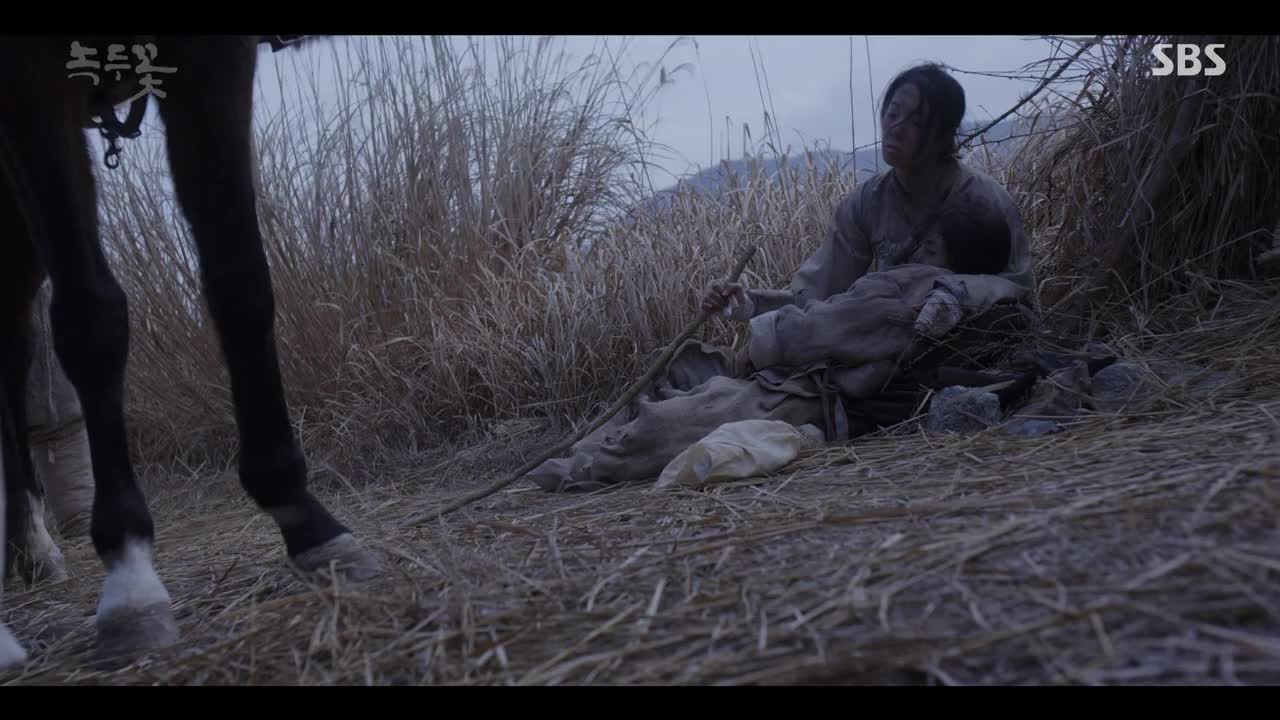
Our story begins at the end of the 19th century, when the Joseon dynasty was deteriorating due to corruption of its officials and the growing Japanese dominance. Once fertile fields are now dry and barren, and the peasant farmers are starving to death due to the neglect of the government officials who exploit the land for their own selfish gain.
In the Jeolla provincial town of Gobu, the peasants, farmers, and merchant commoners are terrified of a thug they only know as “What’s-his-name.”
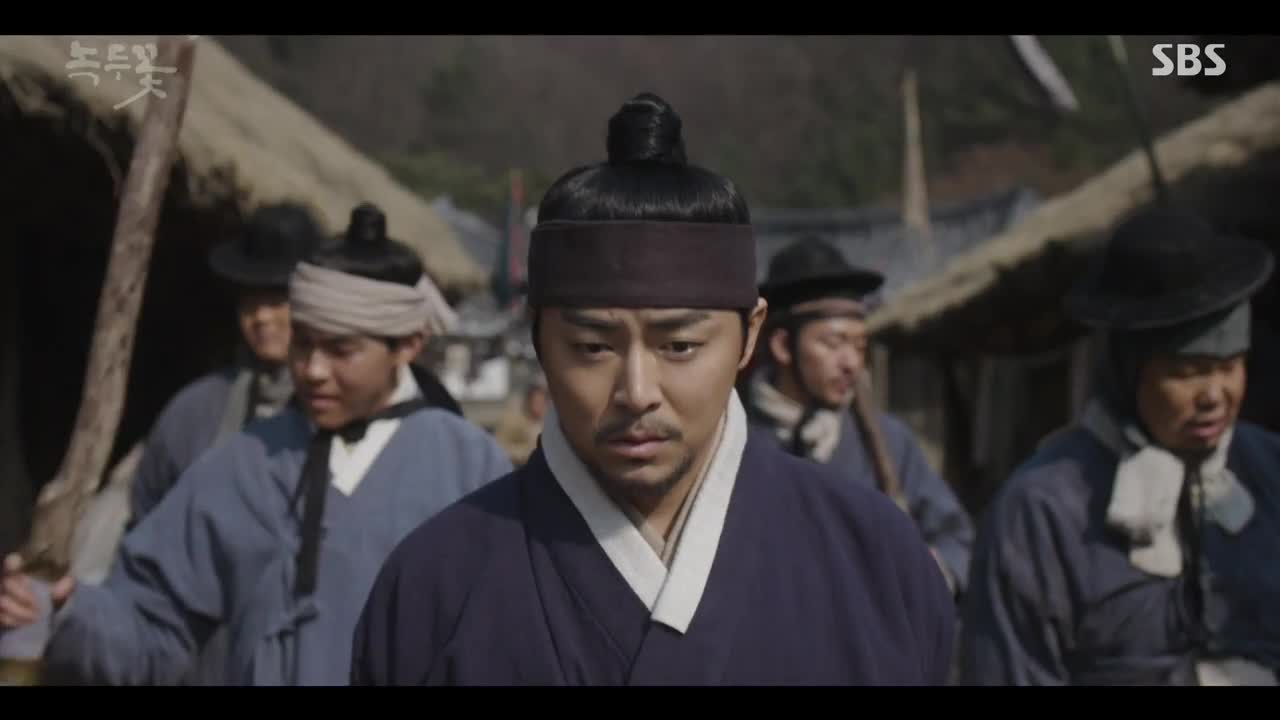
He’s actually BAEK YI-KANG (Jo Jung-seok), the bastard son of Master Baek, a rich official who basically rules Gobu. As “What’s-his-name” the enforcer, he uses violence and fear to make sure the Baek family stays in control of the town (and the town’s money).
The merchants and commonfolk scatter in terror when they see Yi-kang and his gang of enforcers arrive in town, but one of the thugs points out that the local apothecary is the rumored leader of Donghak, the growing academic movement and religious group that wants to overthrow the archaic feudal system.
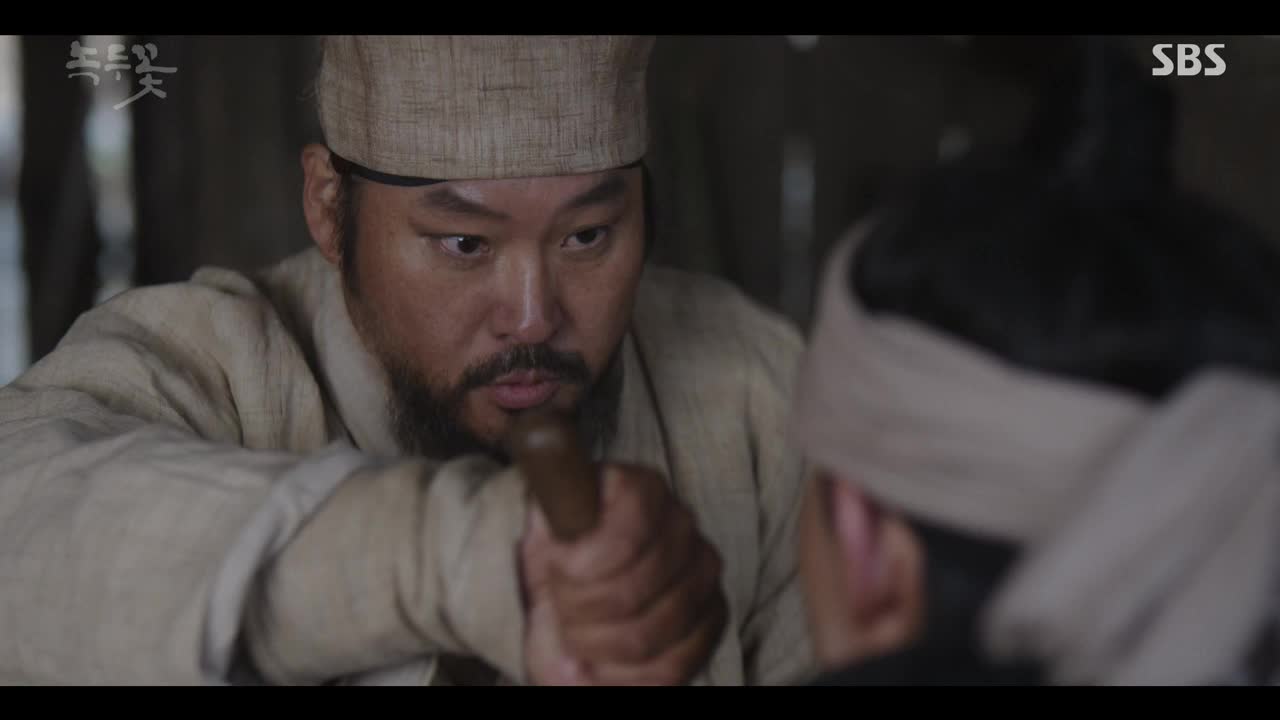
This rumored leader, JEON BONG-JOON (Choi Moo-sung), isn’t intimidated by Yi-kang or his men, and when one of them confronts Bong-joon, he continues to chop at his medicinal roots, ignoring them — until one gets too close and Bong-joon threatens to chop the man’s hand off.
Bong-joon laughs as the thug’s bravado turns to shrieking terror, but Yi-kang swaggers up, demanding to know if Bong-joon really is a member of Donghak. Bong-joon merely asks Yi-kang’s name — in case he needs to write on a hit list or a tombstone. Smirking, Yi-kang says that “What’s-his-name” is his name.
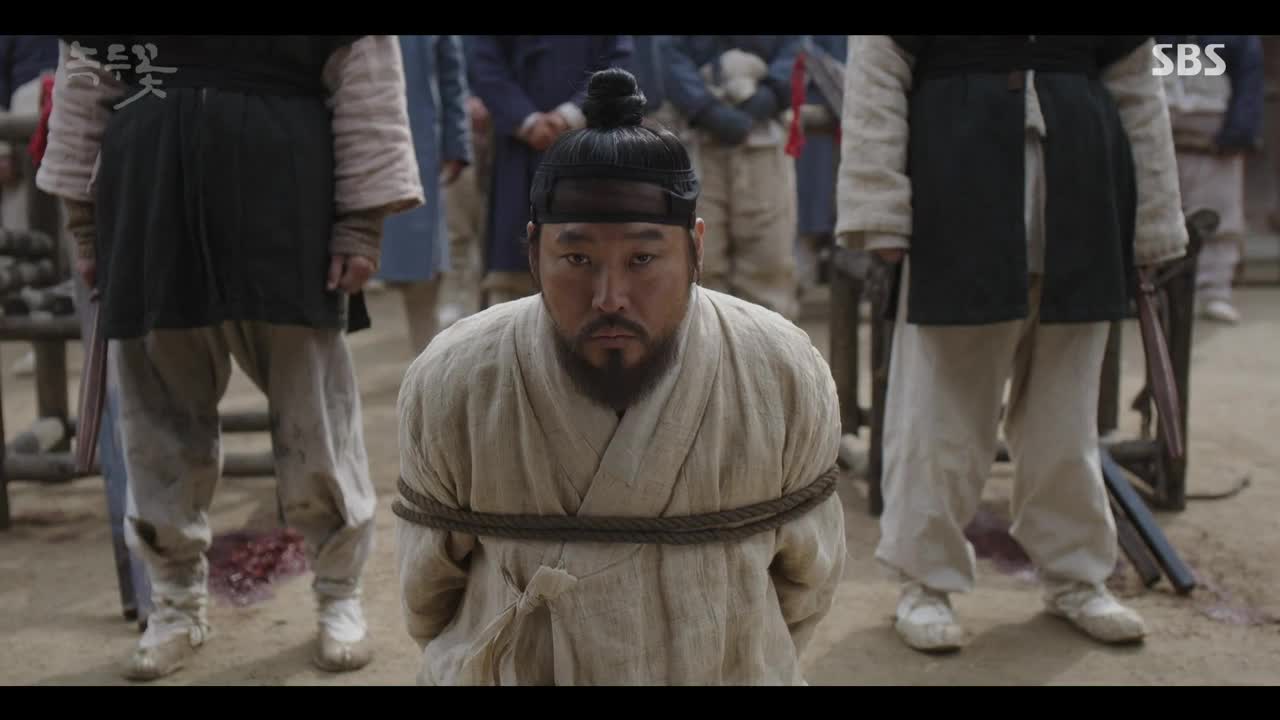
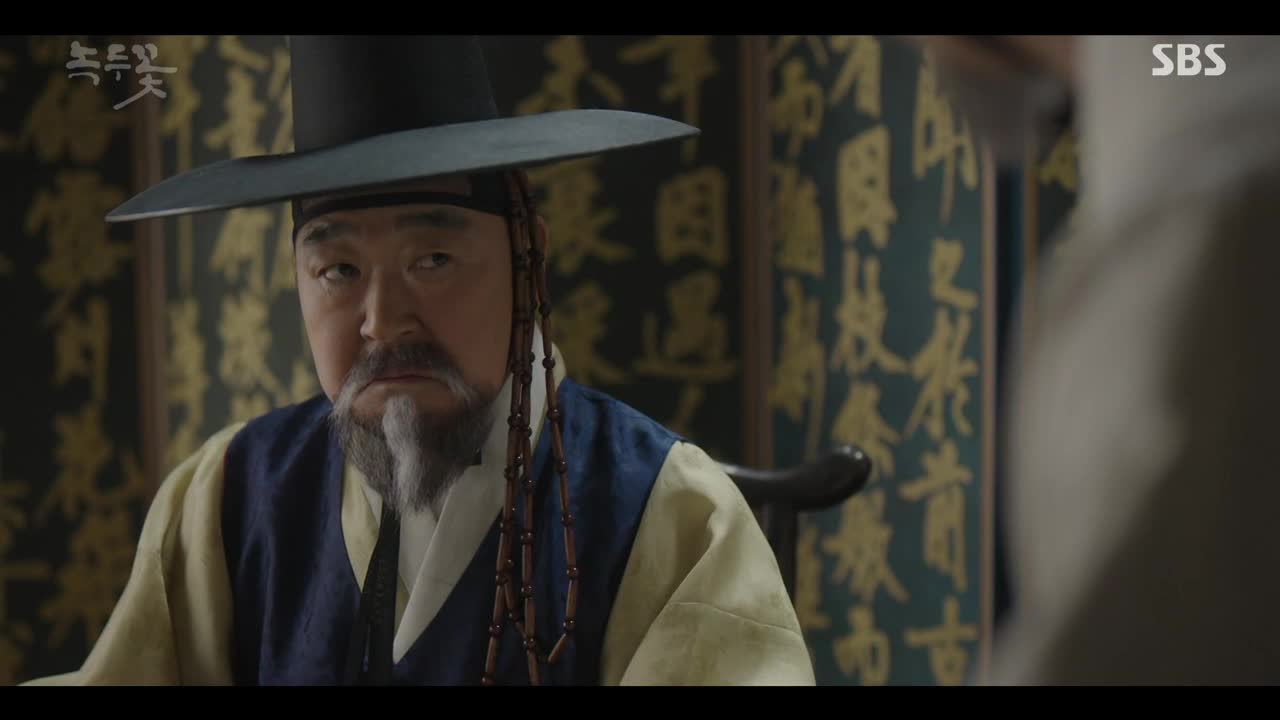
But Bong-joon is arrested for his petition against the corrupt magistrate’s tax laws, insisting that the government should stop accepting unjust taxes and fines. Magistrate Jo Byeong-gap, with the encouragement of his greedy right-hand man, agrees to not only punish Bong-joon, but institute a ban on exporting rice.
The farmers are aghast, since that’s the only way they’re able to make enough money to pay their required taxes (and still find a way to live). Plus the only rice store in town is owned by the Baek family — which means that they’ll have a monopoly on everyone’s main source of food. With no other options, the Baek family can buy the farmer’s rice for cheap and then turn around and sell it at an inflated price (which will also help cushion the magistrate’s pockets).
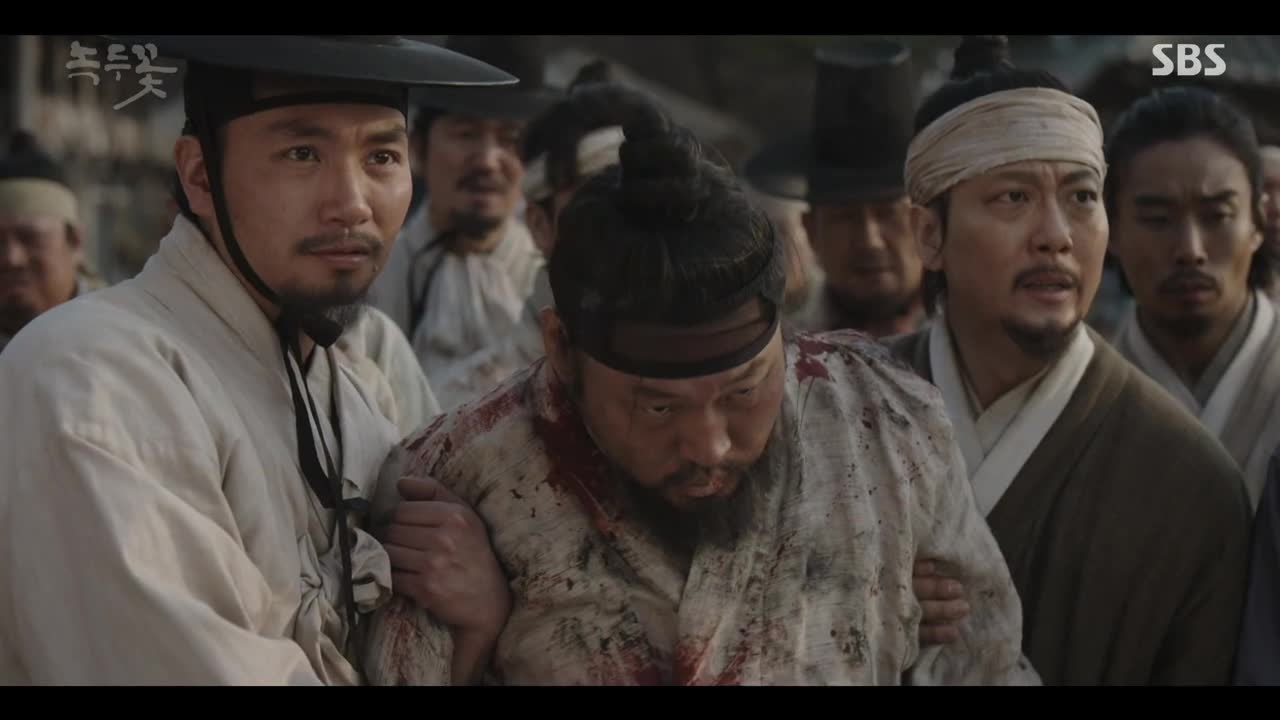
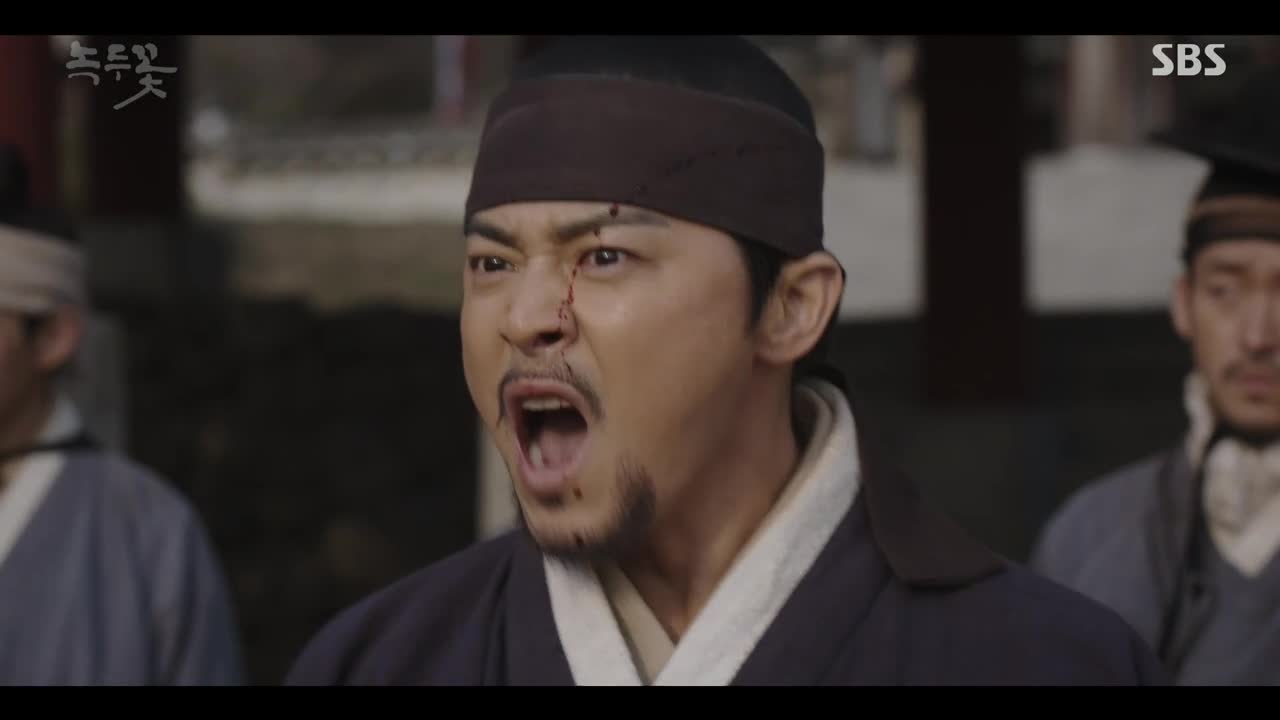
After Bong-joon is released from his punishment (one hundred floggings!), his fellow Donghak members rush to support him. But Yi-kang brutally beats up one of the Donghak members as a visual warning of what will happen to the townspeople if they refuse to obey the magistrate’s new export ban.
As he’s doing so, Yi-kang’s half-brother, BAEK YI-HYUN (Yoon Shi-yoon) rides through the town on his horse, returning home from his years of schooling in Japan. He’s in Korea to take the civil service exam. His family greet him by throwing a huge feast, and Yi-hyun shows off a new marvelous invention he discovered in Japan: a matchstick.
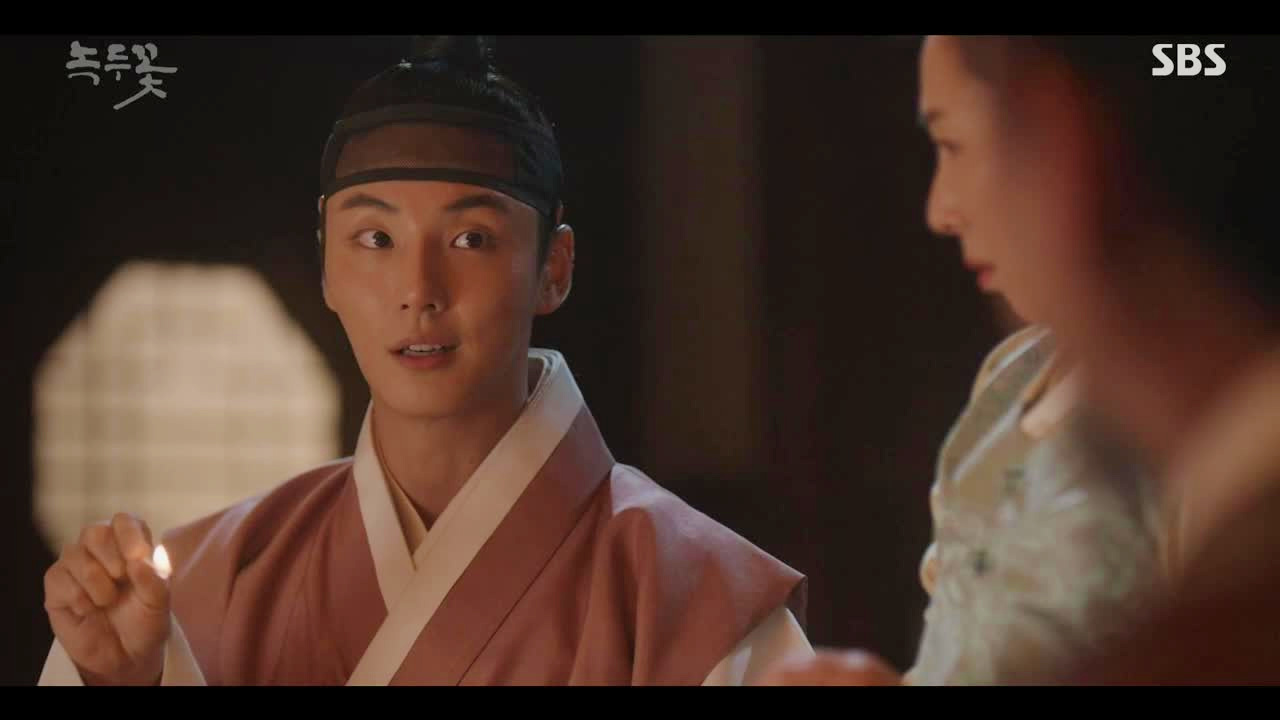
Yi-kang, who is treated as a mere servant in the Baek household instead of a family member, enjoys his simple supper with his mother, who’s eager to hear all about Yi-hyun’s return. She doesn’t have to wonder for long, since Yi-hyun makes his way to the kitchen area to say “hello.”
Yi-kang’s mother jumps up to greet the “young master” formally, but Yi-kang just keeps slurping down his supper. Unlike the formal feast given by his immediate family, Yi-hyun is happy to sit on the shabby floor and enjoy the simple meal with his half-brother. Yi-kang is quietly pleased to see Yi-hyun, too.
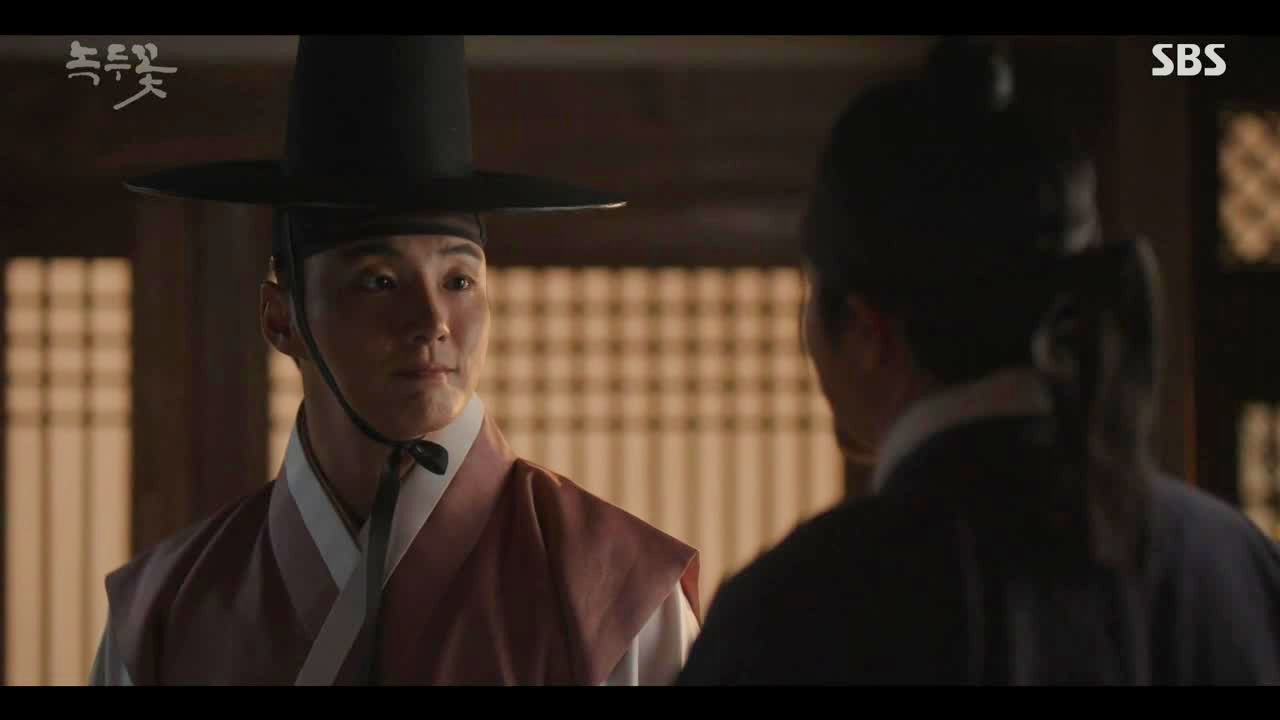
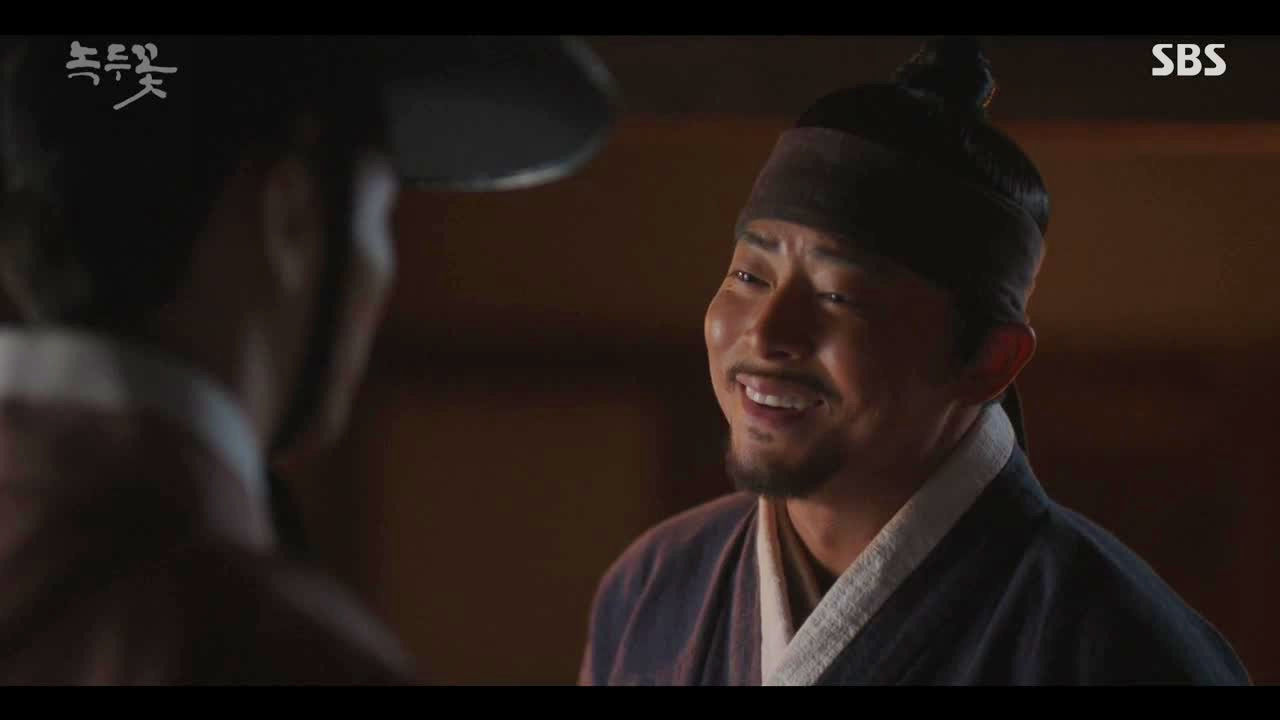
But Yi-kang balks at Yi-hyun calling him “brother.” He warns Yi-hyun that he should stop hanging out with the servants, but Yi-hyun doesn’t seem to take that warning seriously.
He does ask Yi-kang why he so brutally beat up an innocent man. Yi-kang retorts that he’s “What’s-his-name,” the man that the entire town of Gobu fears. He mockingly says he doesn’t recognize the name of “Yi-kang” — that person is dead. But Yi-hyun refuses to pity Yi-kang. Which is fine with him — he doesn’t want his half-brother nobleman’s pity, for him or his mother.
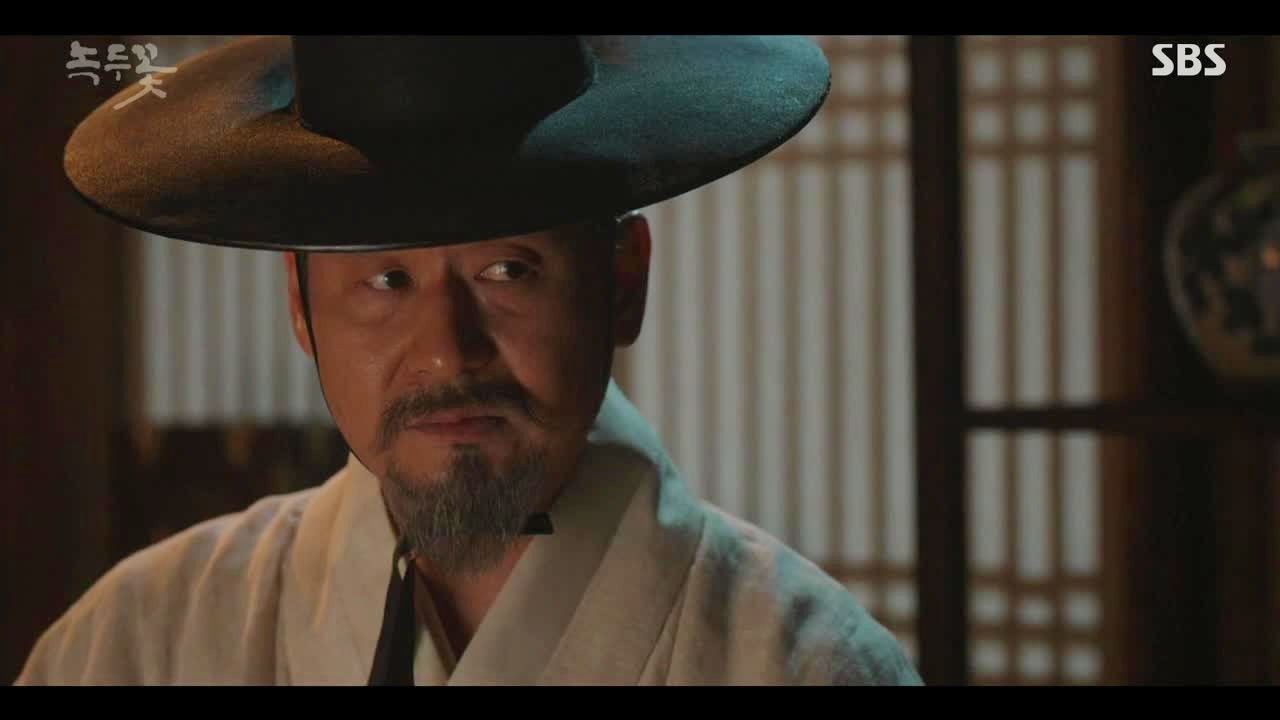
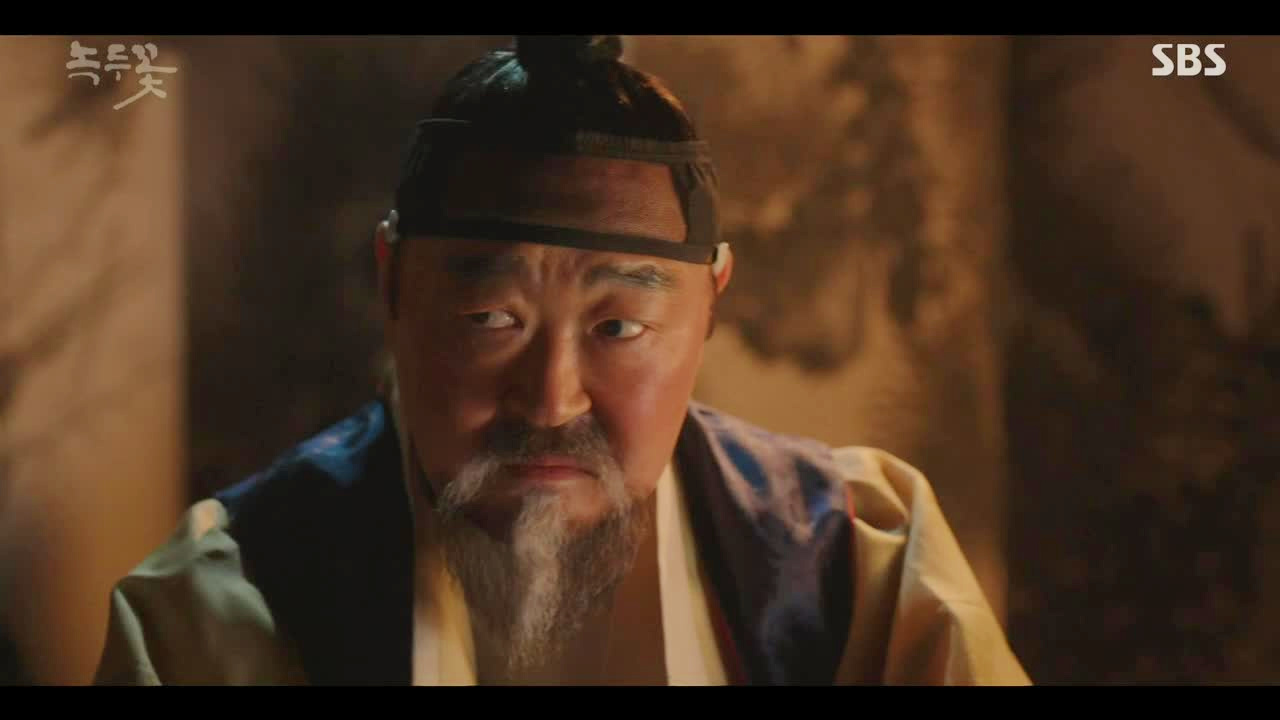
Magistrate Jo suddenly gets word that he’s being transferred from Gobu, much to his annoyance — he’s worked so hard bribing people to get this appointment in the first place! Master Baek slyly offers a way to help the magistrate stay (but only once the magistrate agrees to let Master Baek keep the bulk of the rice store profits).
Meanwhile, Bong-joon secretly meets with his fellow Donghak members, where they craft what is known as the Sabal Tongmun. It’s a petition against Magistrate Jo, wherein they vow to behead and destroy the corrupt Gobu government in order to free the people living under the dishonorable tyranny.
However, so that the leader of the group can’t be easily discovered, all the members sign their name around a circle — that way no man’s name is considered to be “first.”
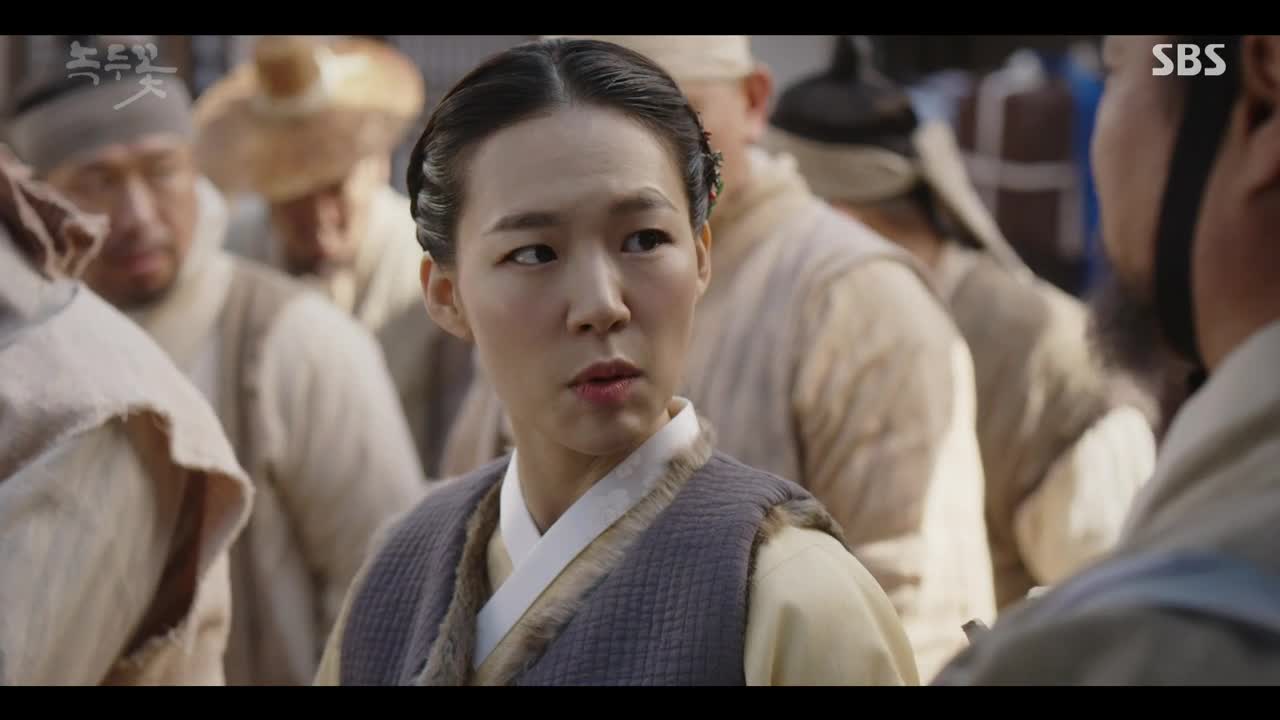
Peddlers congregate at Jeonju Hostel in the Jeolla Province. The owner of the hostel, SONG JA-IN (Han Ye-ri), is a shrewd and ruthless businesswoman. One of her loyal employees (or servants) reveals the impossibility of finding any rice in the area.
She needs rice to sell to Japanese traders, but because of the magistrate’s export ban, rice in the area is now ridiculously expensive and therefore unobtainable. So the peddlers that supply her rice are now returning empty-handed.
She impatiently wonders when the new magistrate will arrive, but “mysterious” things keep scaring off the various new magistrates (thanks to Master Baek and Yi-kang). They go through five new magistrates within the space of a month.
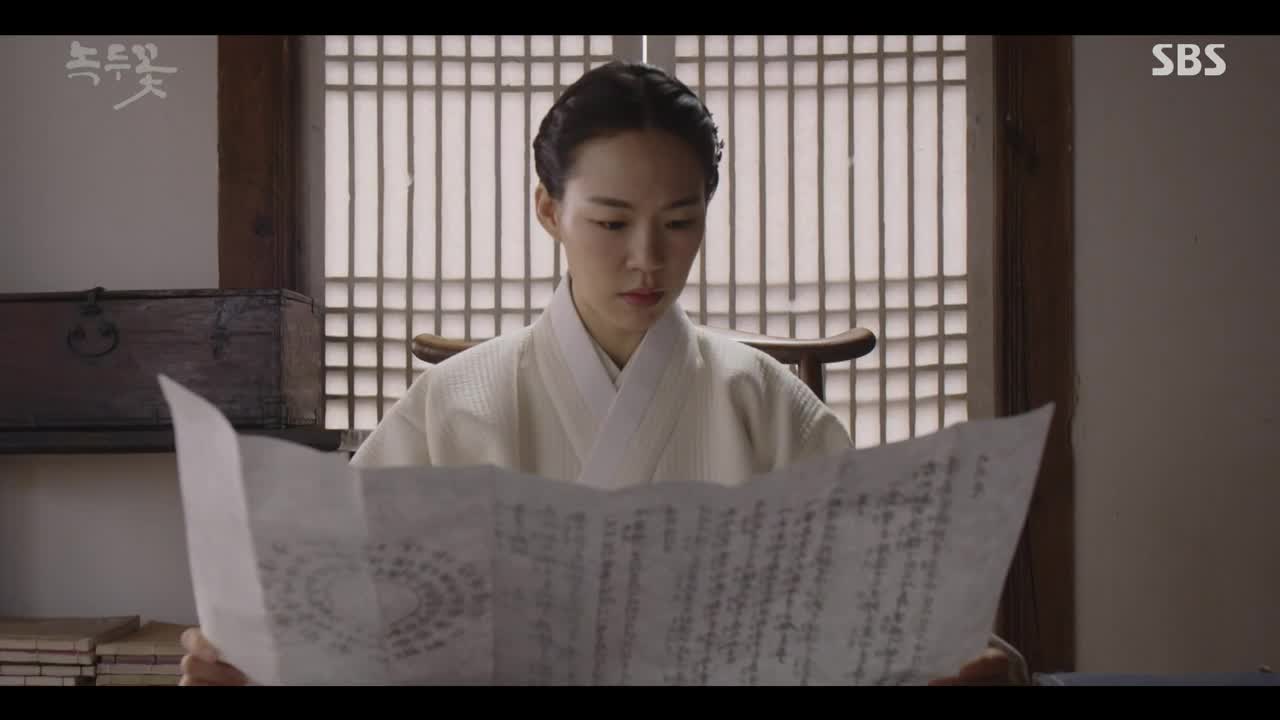
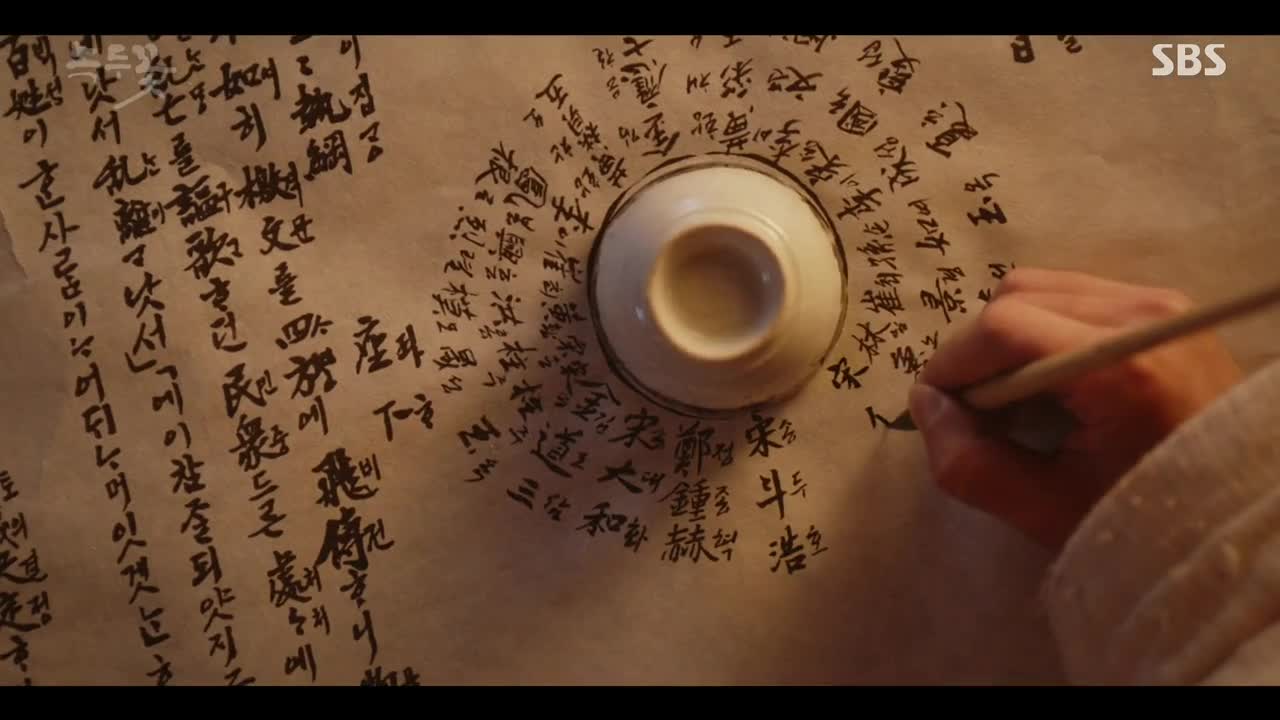
Eventually, Ja-in decides to go to Gobu herself to buy rice, since they’re the only town in the area with enough to spare. Her father gives her a letter to hand over to the magistrate — it’s the Sabal Tongmun, which was stolen from a traveller when he stopped by the Jeonju Hostel a month ago. The magistrate might be so thankful to get the names of the Donghak members that he might cancel the export ban.
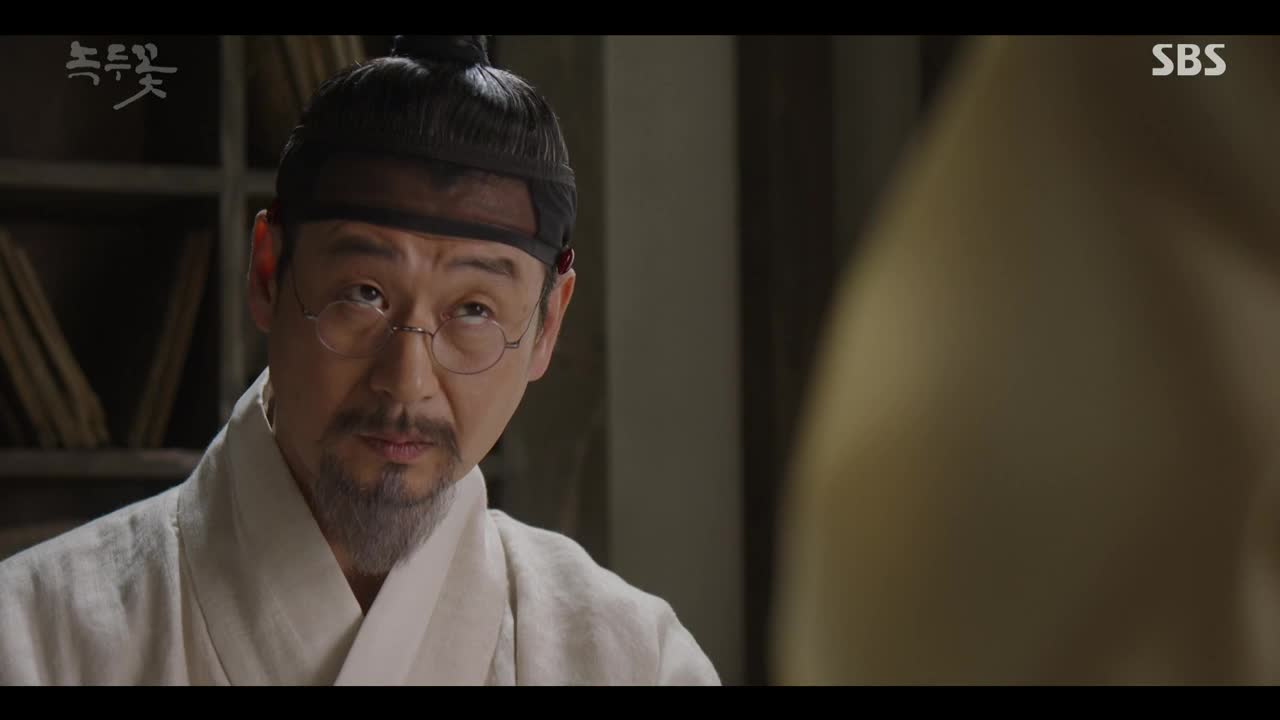
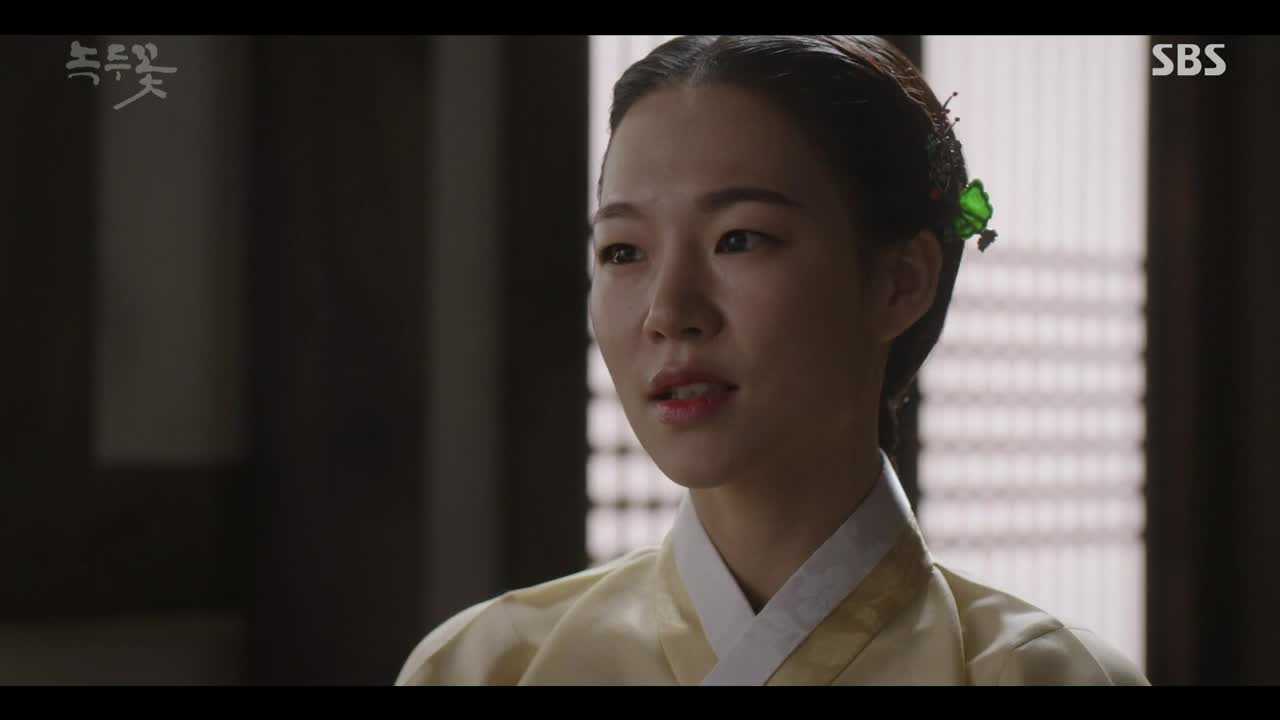
In Gobu, Ja-in meets with Master Baek, since he’s the owner of the only rice store in the area. She hints that, even though there’s an export ban, Master Baek is essentially in charge until the new magistrate arrives, and drops a heavy amount of money on his desk, offering to pay above market value for the rice.
Master Baek tasks Yi-kang to return the money to her, and once he tracks her down in town, he casually tosses the ring of coins at her. As she bends to pick it up, someone else reaches for it first — it’s Yi-hyun, who politely hands the money to Ja-in.
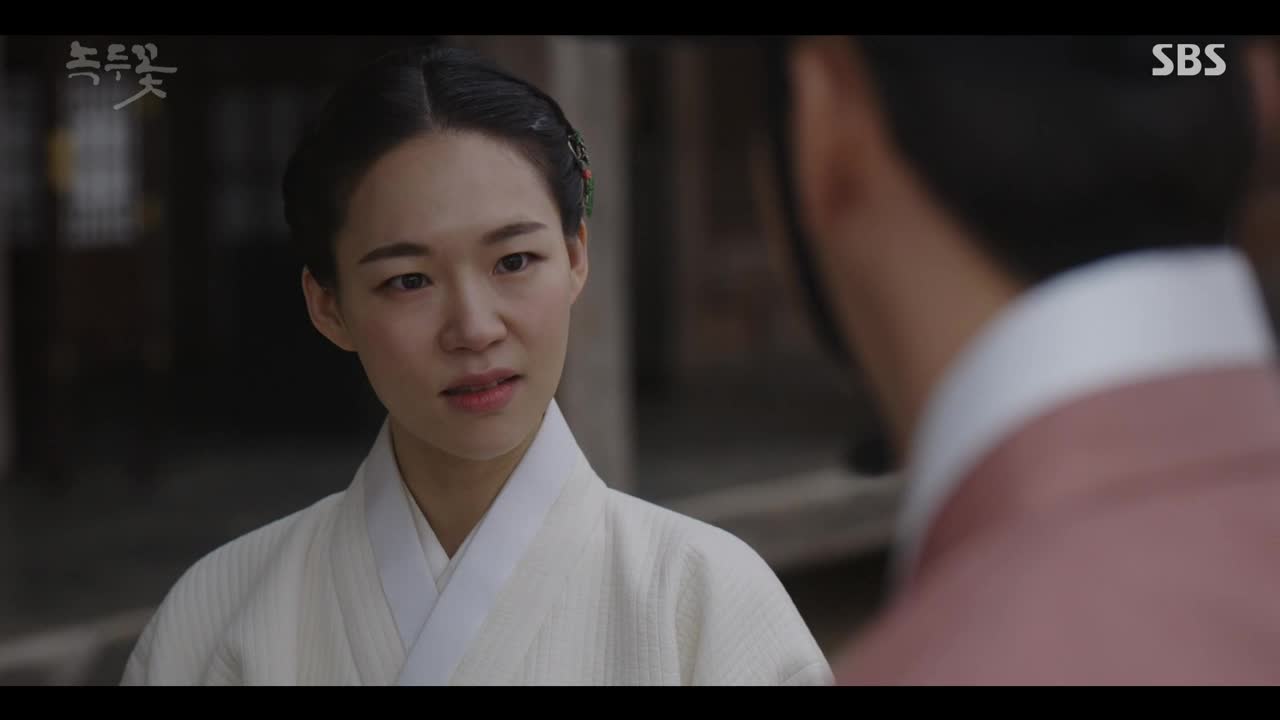
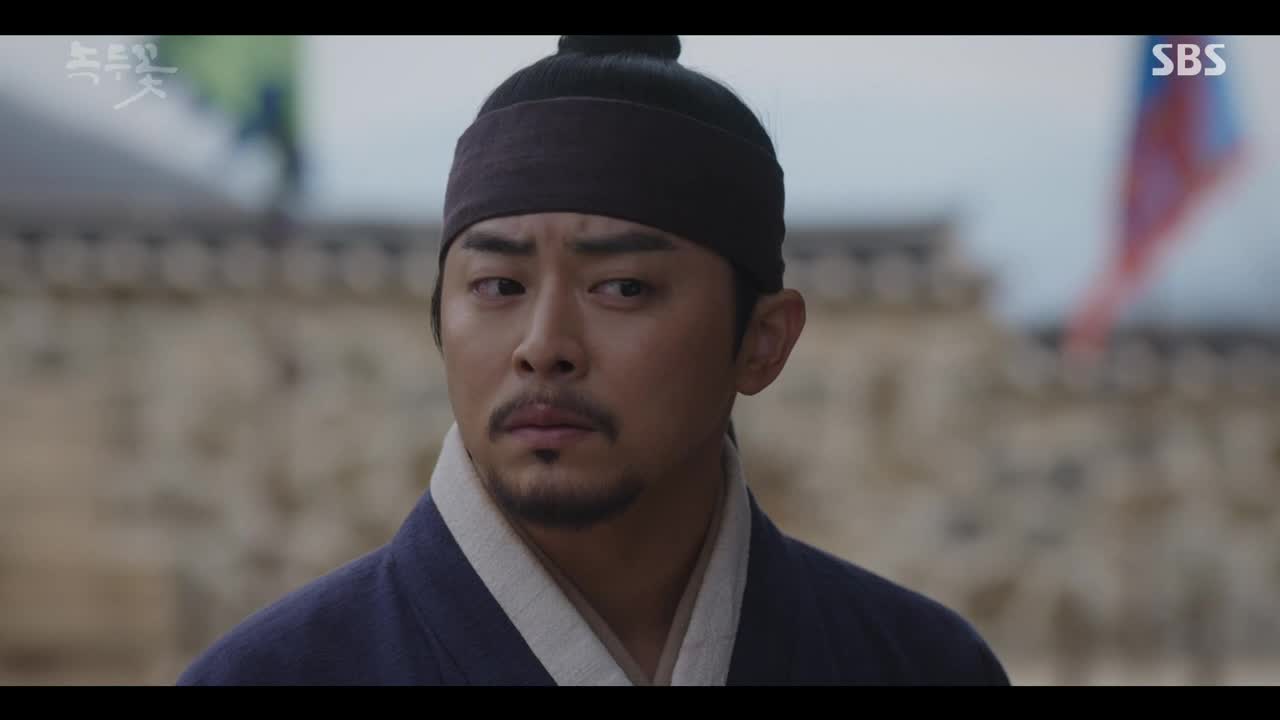
Yi-kang sneeringly warns her that the townspeople won’t take kindly to someone buying rice to sell to the Japanese, so Ja-in, with a smile on her face, pleasantly insults him in Japanese. That’s not a language Yi-kang understands, and he helplessly looks at Yi-hyun to translate.
Yi-hyun, amused and fully aware of the rude names Ja-in just called Yi-kang, lies that she said she was thankful for Yi-kang’s advice. Ja-in is surprised that someone else knows Japanese.
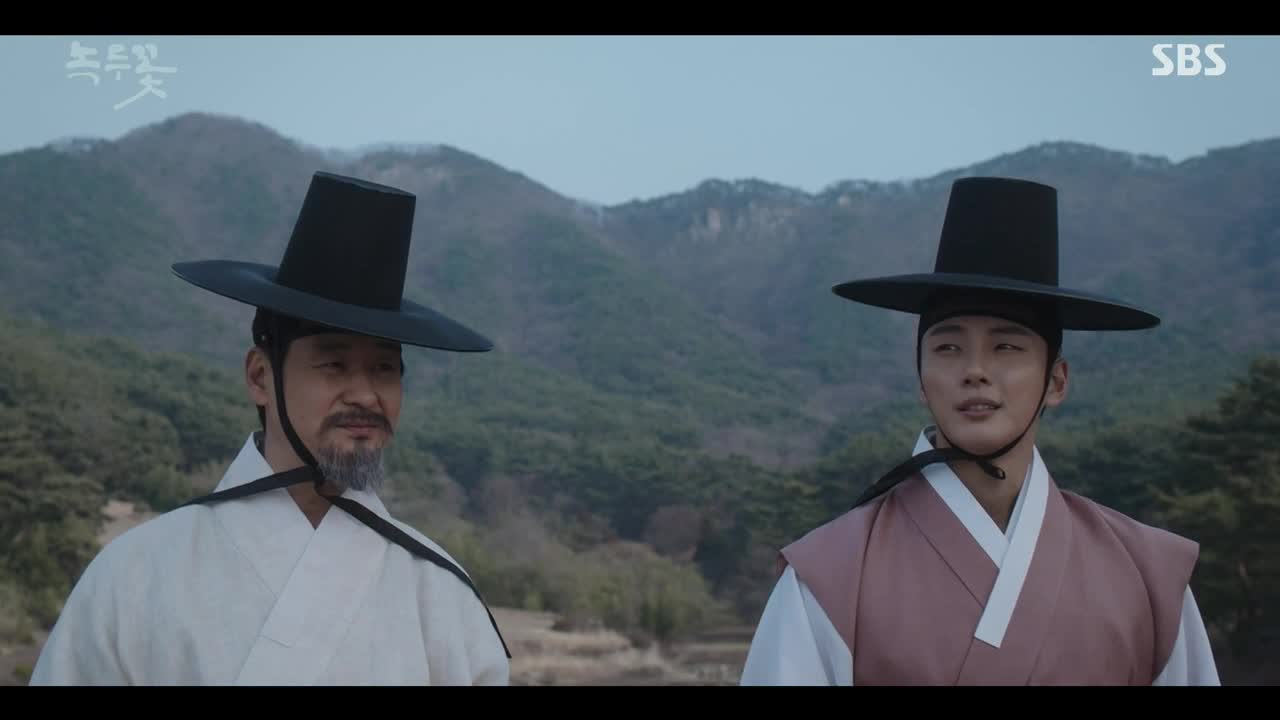
The civil servant exams are coming up, and Master Baek is eager to prep Yi-hyun for them. Not that Yi-hyun needs to worry, since Master Baek has already bribed the test officials with some land — the first parcel of land he was ever able to purchase, having grown up in very humble circumstances. Master Baek has clawed his way to his station and his riches, and his only hope is to die the father of a government minister.
Meanwhile, Yi-kang continues his violent threats against the commonfolk. One of the peasant women furiously wields a scythe as she warns “What’s-his-name” that the commonfolk’s dearest wish is to disembowel him. Yi-kang just laughs and shoves her away. He’s distracted when he sees Ja-in and her loyal servant, Choi Deok-ki.
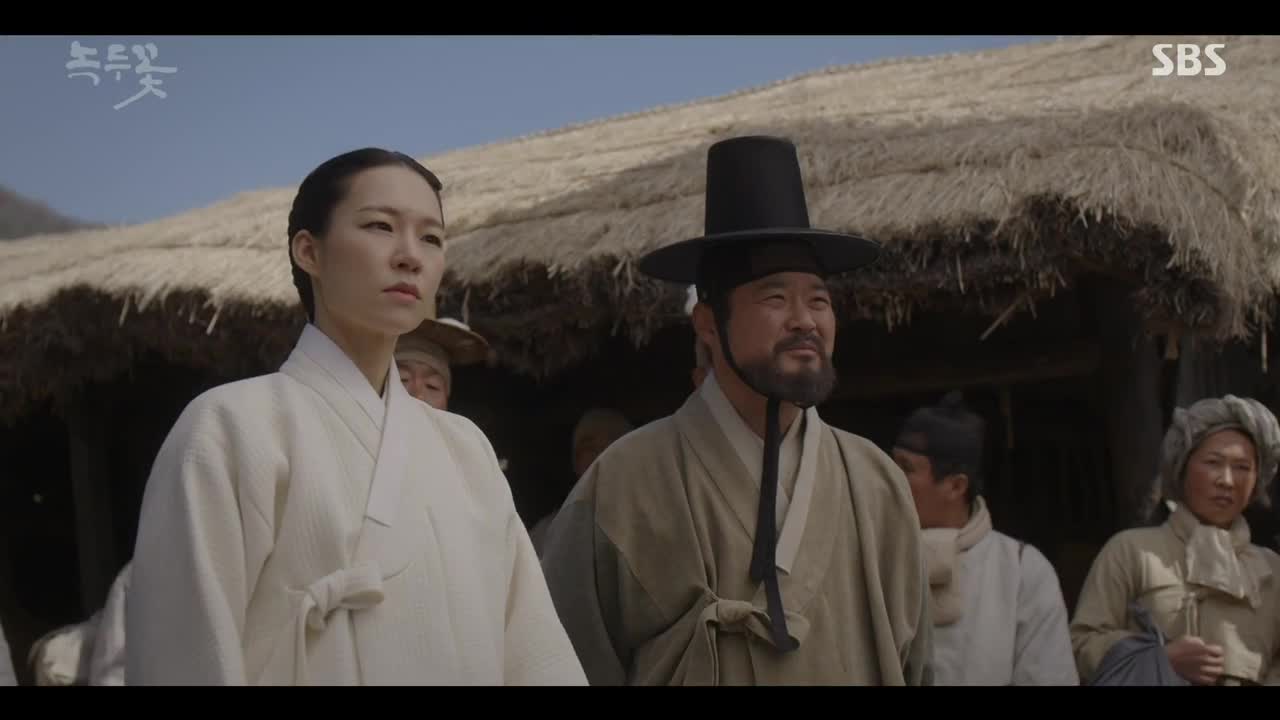
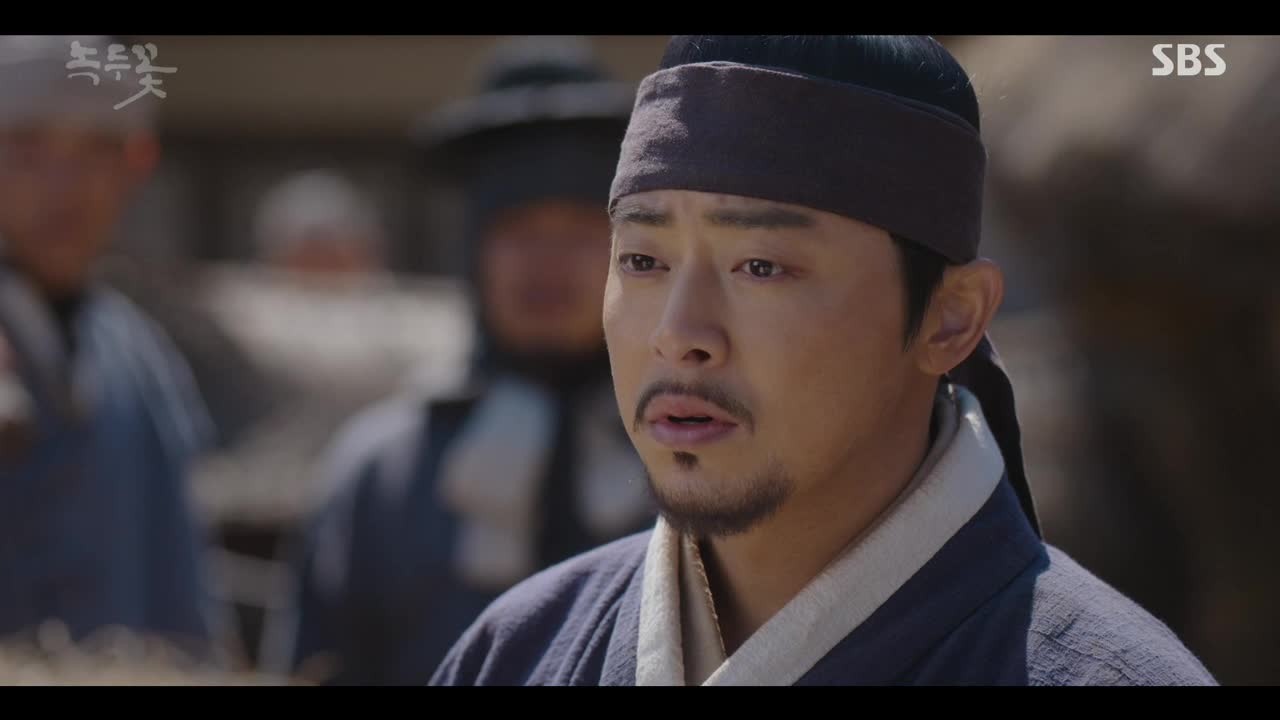
Yi-kang’s fellow thugs happily warn them that they caught the Jeonju peddlers illegally buying rice. Deok-ki steps forward to intervene, but Yi-kang punches him the face, sending Deok-ki to the ground. Yi-kang is more focused on Ja-in, though, ordering her to leave Gobu — and then he’ll forgive her. But Deok-ki bounces back to his feet, hands his hat over to one of the other men, and grins as he says that Yi-kang must be a good fighter.
Yi-hyun visits one of his old tutors, who dismisses the matchstick as a petty, Western object that offers nothing of substance. But Yi-hyun wisely points out that for the women who slave all day to keep a fire going, that simple object is a life-changer. He vows that he’ll take the civil service exam so that he can reform the corrupt Joseon government from within, dragging them into an enlightened, civilized age.
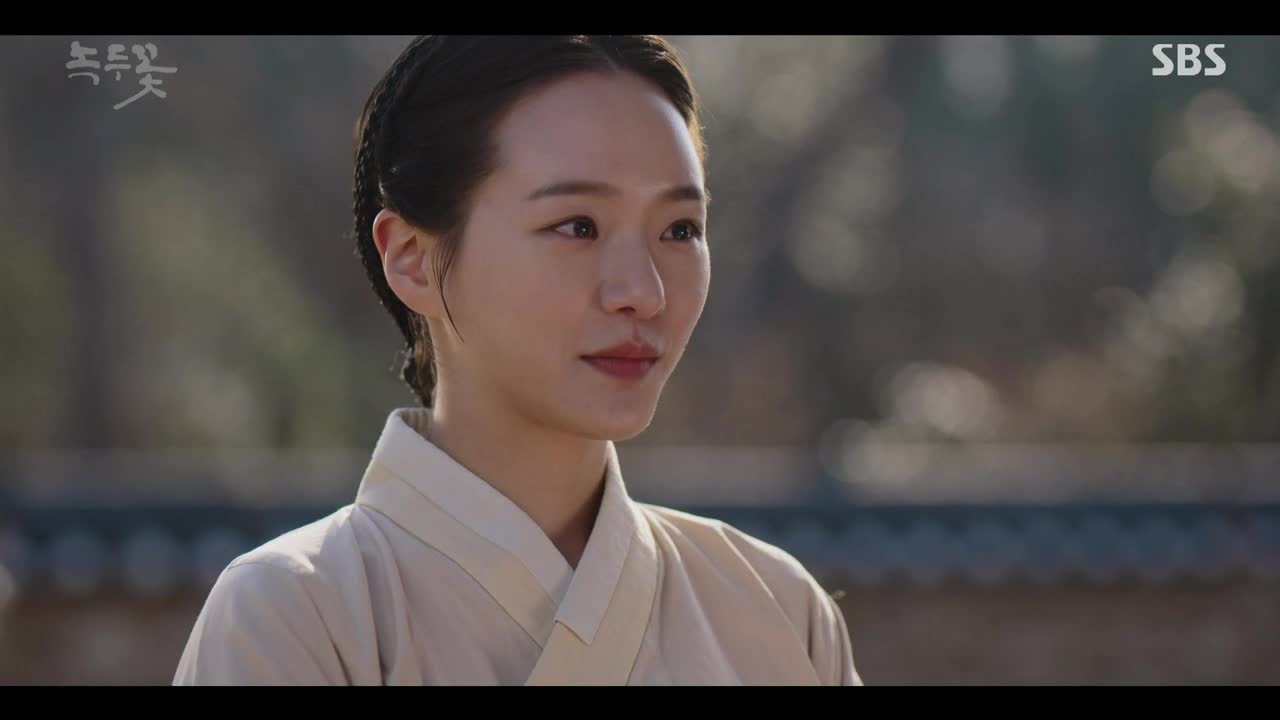
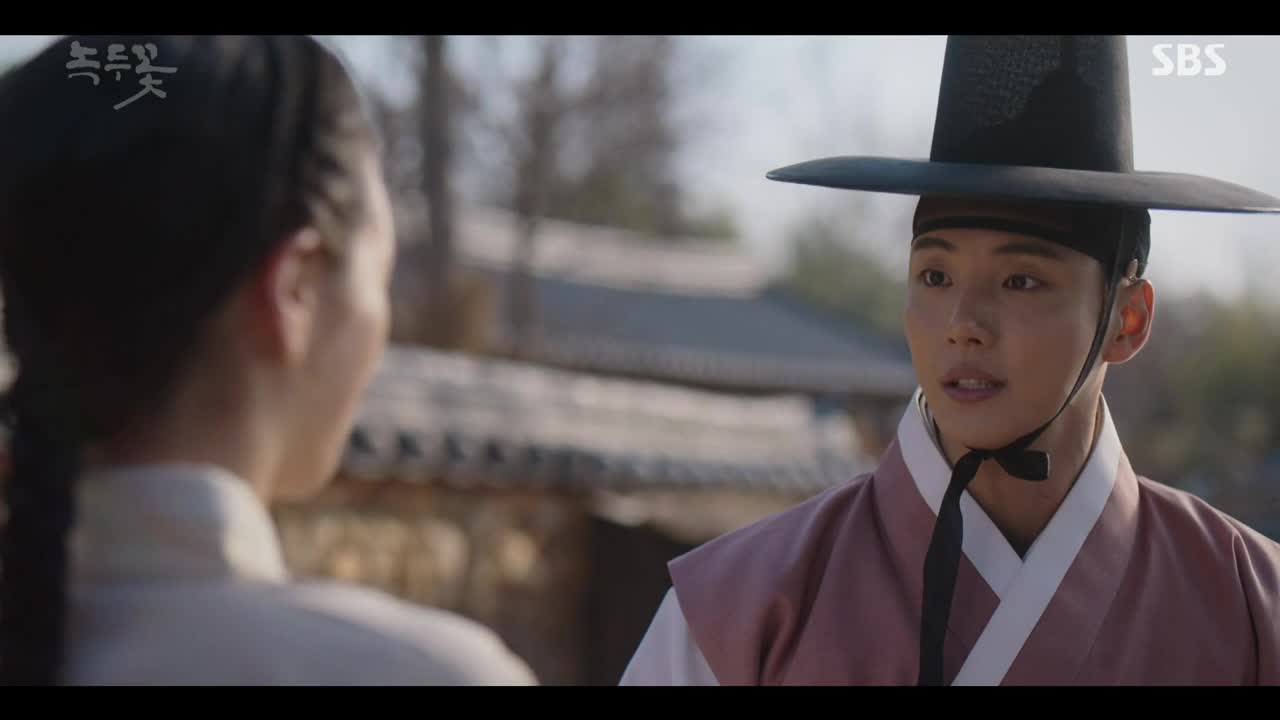
As he starts to leave, the tutor’s daughter follows after him with total heart-eyes, shyly offering him a gift of some sweets. But Yi-hyun is distracted by townspeople rushing to where Yi-kang and Deok-ki face off, ready to fight.
If Yi-kang wins, then Deok-ki and the other peddlers will leave Gobu. But if Deok-ki wins, then Yi-kang will forget about the illegal rice purchases. They fight, with some impressive acrobatic leaps, and at first it seems like Yi-kang has the upper hand. But eventually Deok-ki starts to get in some impressive punches.
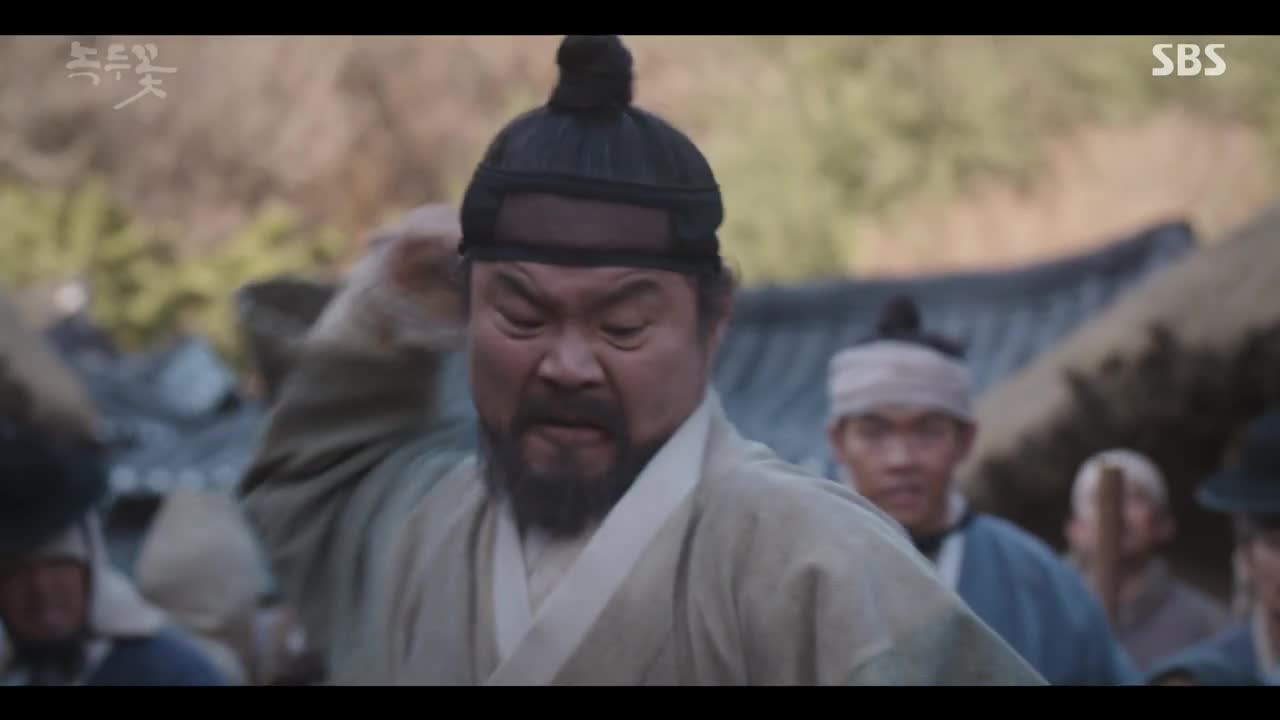
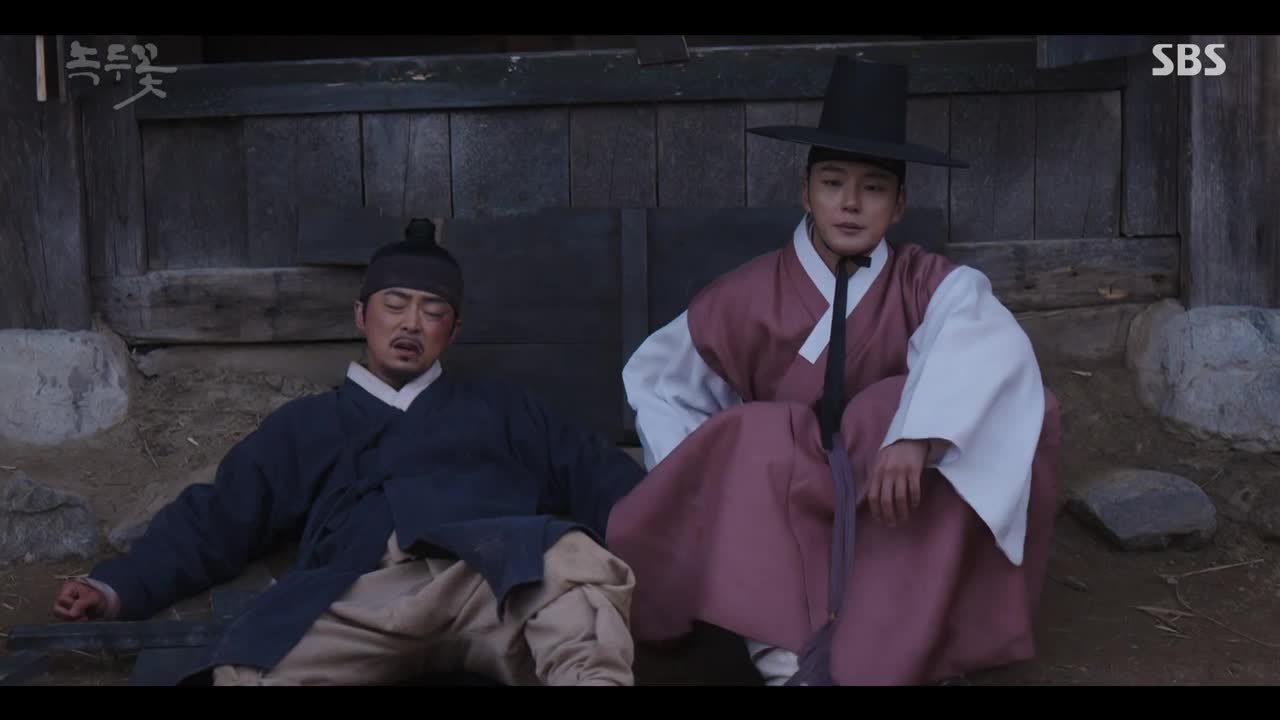
Yi-kang sneakily grabs a knife and throws it expertly into Deok-ki’s chest. Suddenly the jovial Deok-ki no longer sees this as a game, and as Yi-kang furiously tries to stab at Deok-ki with another knife, Deok-ki pins down and ruthlessly beats on Yi-kang. Deok-ki is getting ready to serve a final blow to Yi-kang’s head when Yi-hyun stops him, quietly-but-firmly asking Deok-ki to show mercy on Yi-hyun’s brother.
But it’s only at Ja-in’s order that Deok-ki lets go. Yi-hyun stays with the bloody and exhausted Yi-kang, telling him that he plans to leave Gobu soon, and he doesn’t intend to return. Yi-hyun suggests that Yi-kang should leave Gobu as well — or at least find a way to live as Yi-kang, and not “What’s-his-name.”
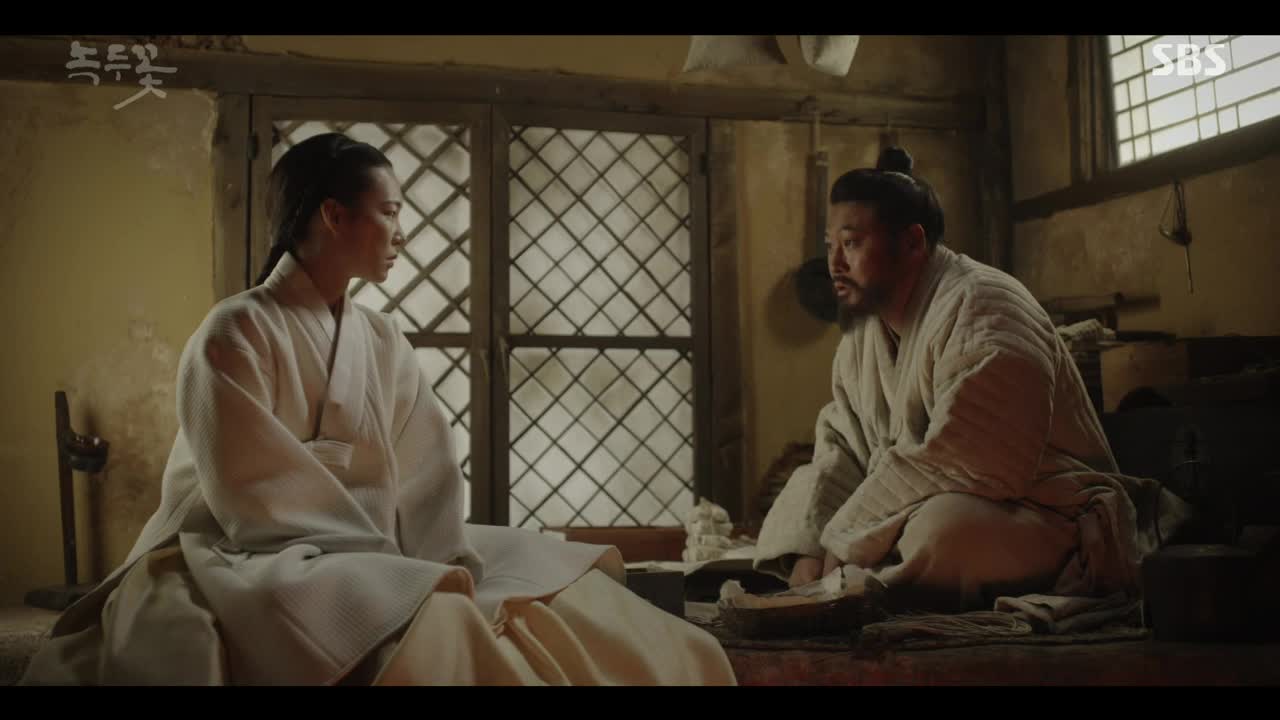
Later, Ja-in buys the medicine needed to heal Deok-ki’s stab wound. As the apothecary cheerfully chatters at her, she realizes the man has the same name as one of the members on the Sabal Tongmun: Jeon Bong-joon. Her suspicion grows as he mentions that her intent to wait for the new magistrate to arrive and remove the export ban might be foolish, since Magistrate Jo might return instead.
He continues to talk about how the corrupt government is destroying the commonfolk, pushing them to the edge of the cliff by demanding so much unnecessary tax. That’s not the kind of world he wants to live in. The words he are too similar to the ones from the Sabal Tongmun, and Ja-in concludes that Bong-joon isn’t just a member of Donghak — but the leader.
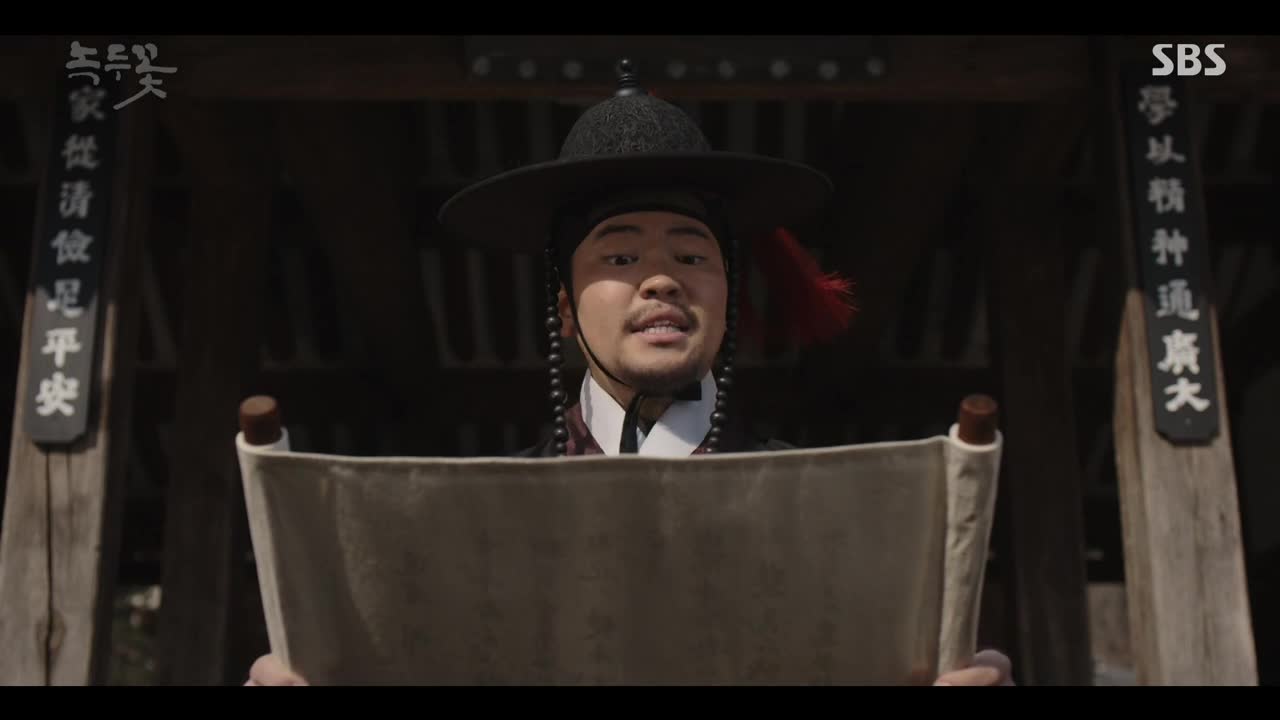
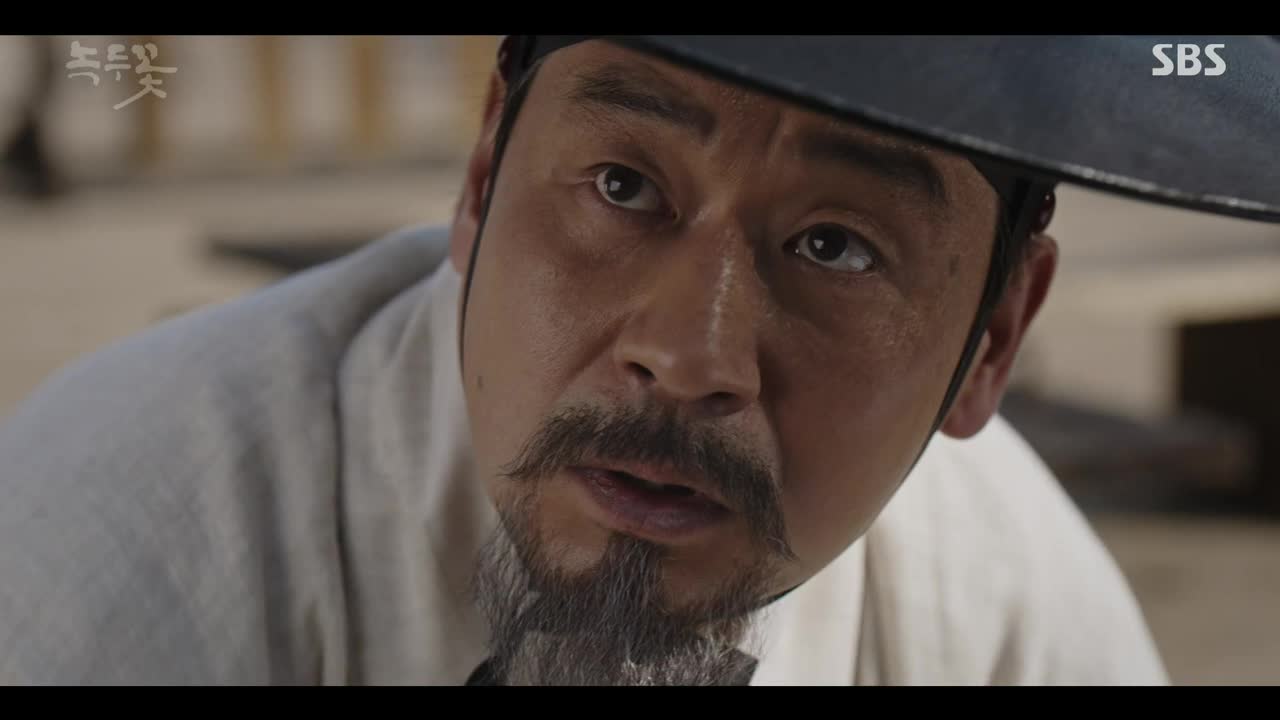
There is a new magistrate in town — but not Magistrate Jo, much to Master Baek’s disappointment. And this magistrate actually vows to lift the export ban in order to bring peace to the province. That’s definitely not in Master Baek’s plans, since it means he’ll no longer have the monopoly on rice.
It’s time to take drastic action, and Master Baek orders Yi-kang to kill the new magistrate. Yi-kang is shocked by the extremity of the solution, but Master Baek sweetens the deal by promising to raise Yi-kang’s mother’s status, which means his status as her son — and Master Baek’s son — would be raised, too.
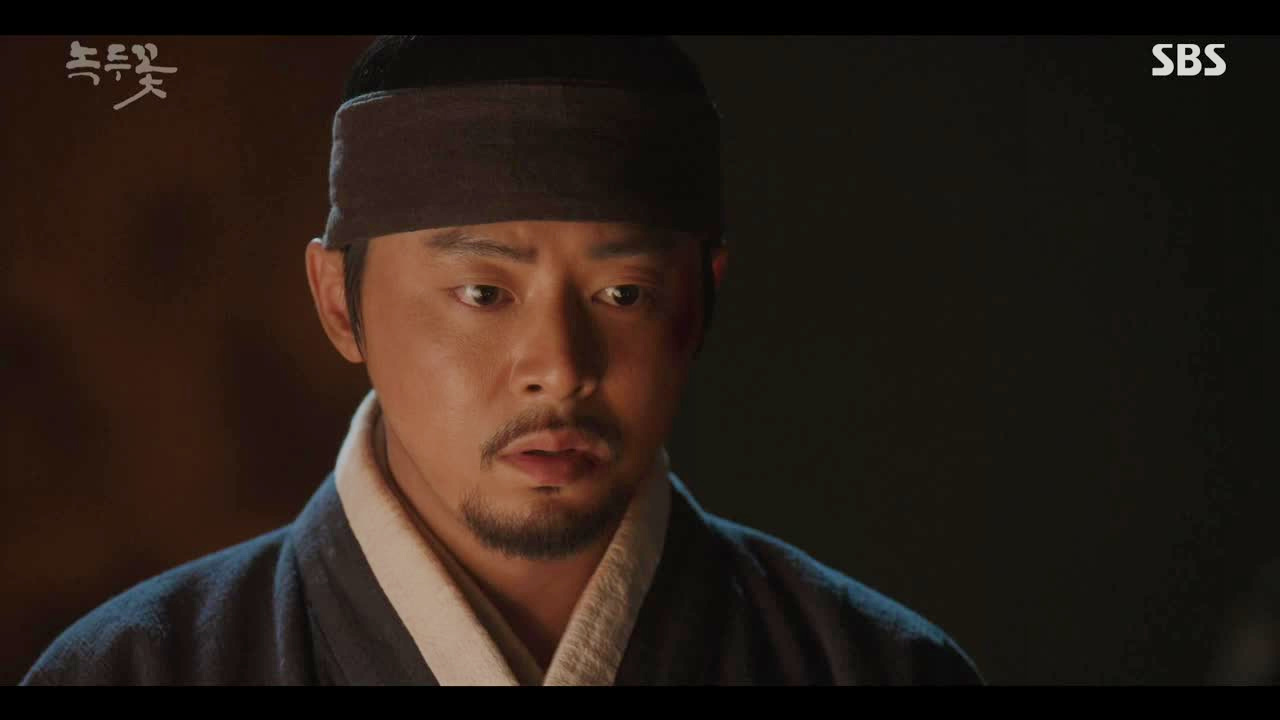
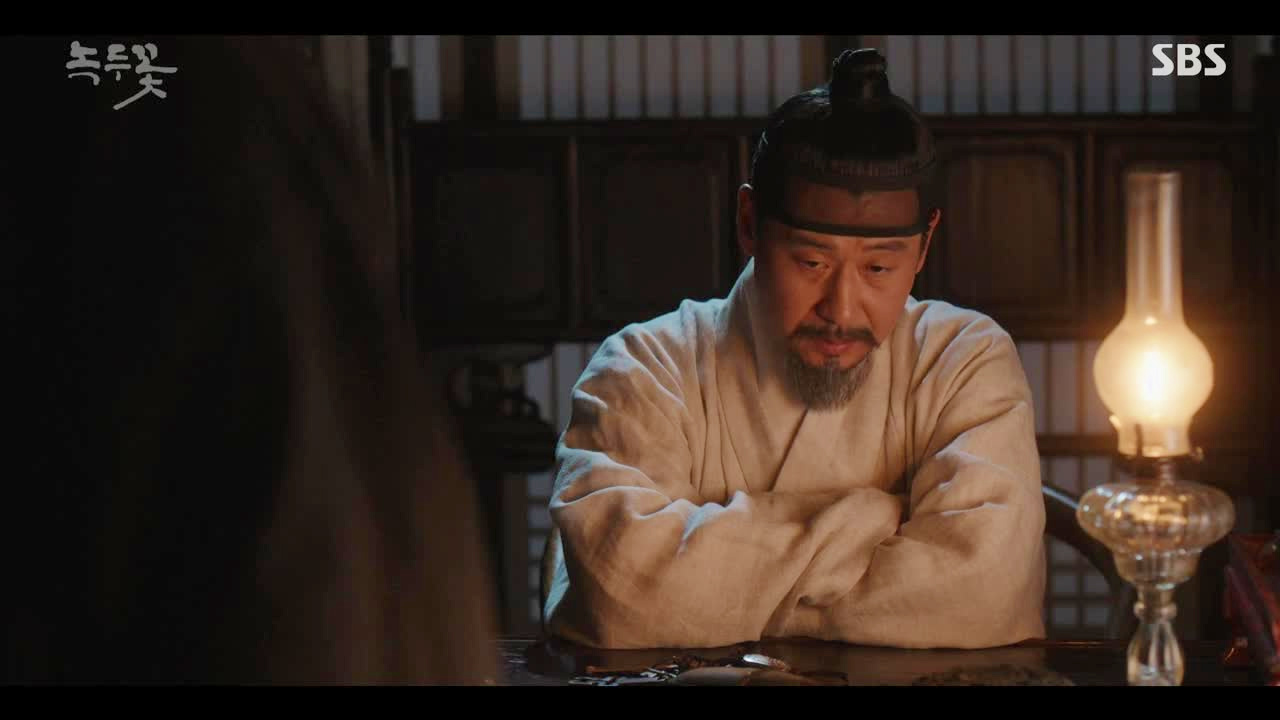
That’s too tempting an offer, and Yi-kang agrees. He leaves, passing by Yi-hyun who possibly overheard, but simply says that he’s there to say “goodbye” before he travels for the civil service exam. Master Baek fills a pouch with gold bars, telling Yi-hyun to give them to the governor overseeing the exam.
Yi-hyun laughs at himself, as though it’s foolish that he’s surprised to expect anything less than his father. Then Yi-hyun furiously asks how Master Baek could ask his own son, Yi-kang — the offspring of the maid he raped — to kill someone. Master Baek matter-of-factly points out that this is a dog-eat-dog world, which seems an affront to Yi-hyun’s idealism.
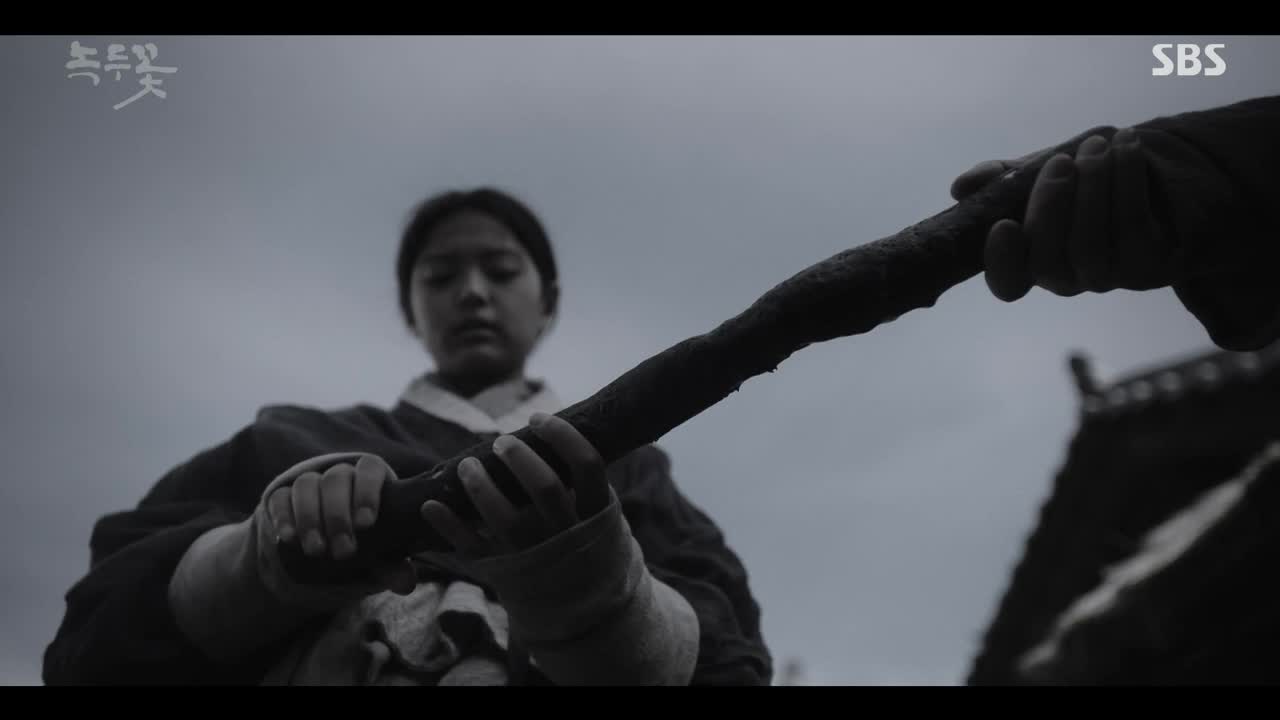
As Yi-kang watches his mother sleep, he remembers when he was a boy and the first time he became “What’s-his-name,” the leader of Master Baek’s thugs. Master Baek said that while Yi-hyun was meant to study and become a nobleman, Yi-kang was meant to beat-up the townspeople to make them pay their taxes. When Master Baek said that by doing this, he would eventually be family, young Yi-kang hesitantly took the stick and began beating the townspeople.
Yi-hyun waits for his brother to walk by. Yi-kang stops when Yi-hyun suddenly admits that even though he always pitied Yi-kang’s mother, he never pitied Yi-kang. If Yi-hyun hadn’t been born, then Yi-kang — even being illegitimate — would have been the son to earn Master Baek’s inheritance. Yi-kang wouldn’t have been mistreated or ordered to kill a man, if Yi-hyun hadn’t been born.
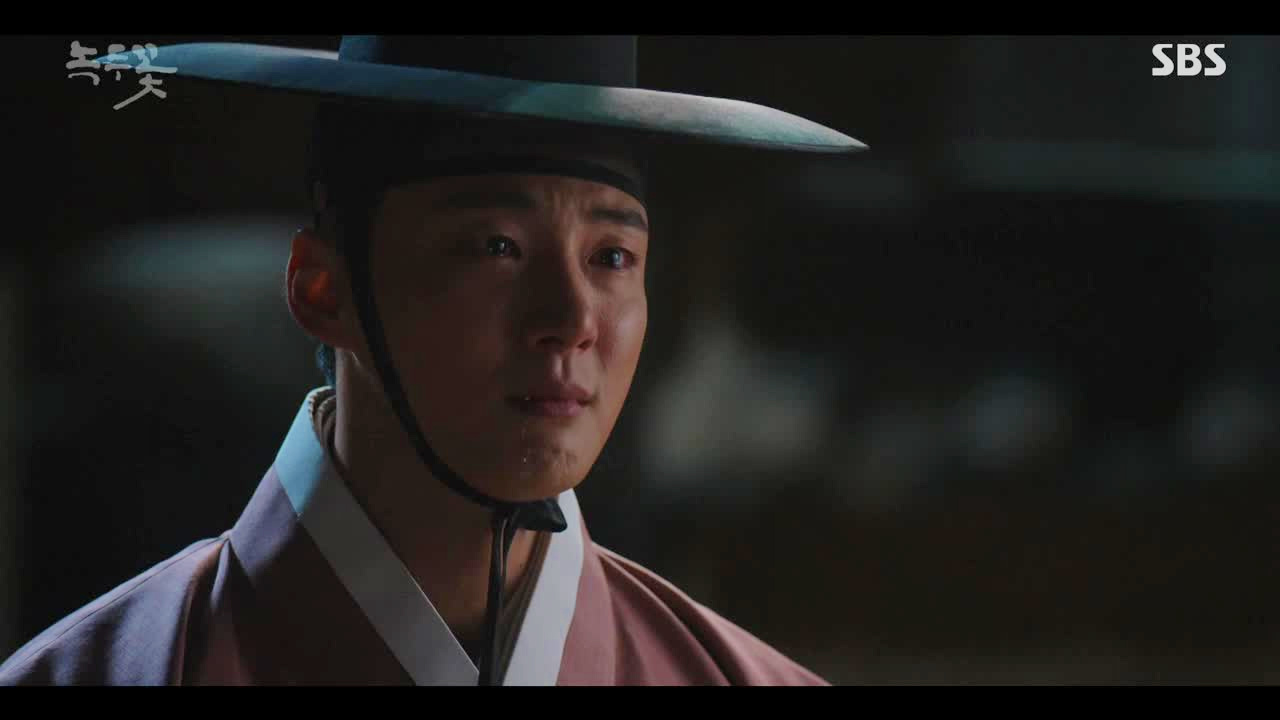
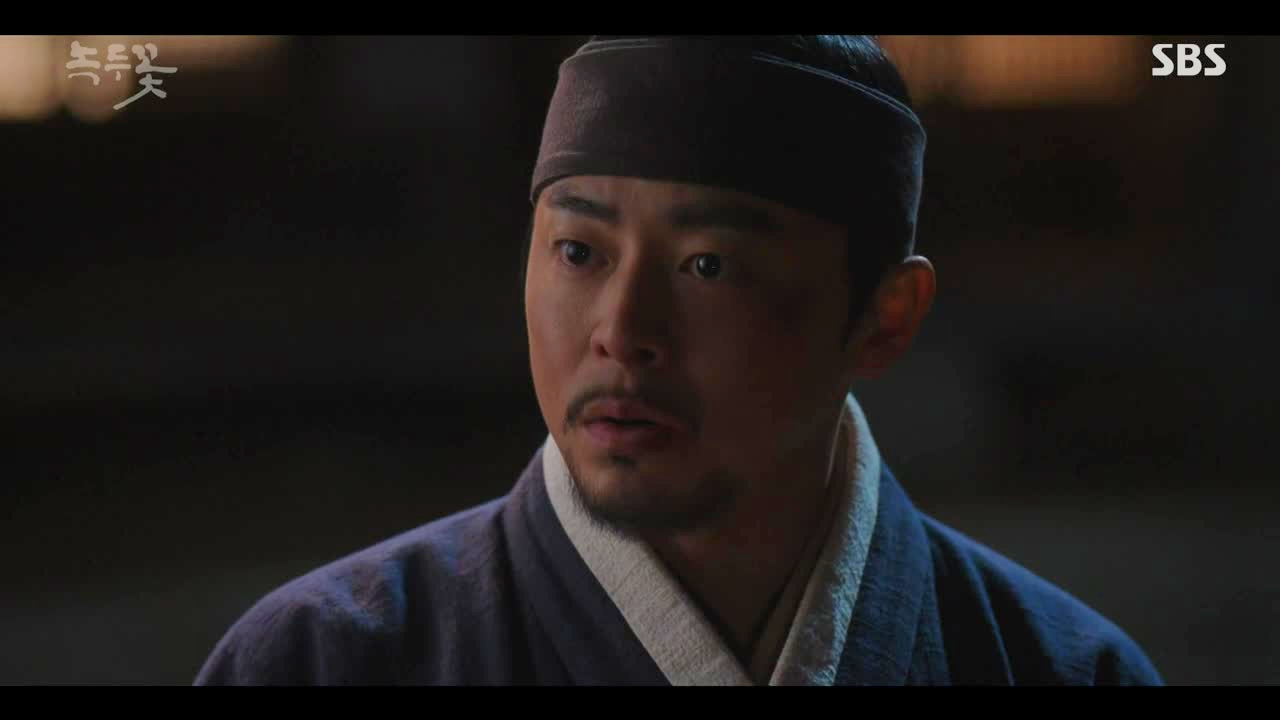
With tears in his eyes, Yi-hyun says he’s sorry — he always has been. Yi-kang gently wipes his brother’s tears away, telling Yi-hyun it’s the older brother who should do the dangerous work, and that Yi-hyun should just focus on the civil service exam.
Yi-kang turns to leave, but Yi-hyun holds out his hand: “This his how civilized people say goodbye.” Hesitating slightly, Yi-kang takes his brother’s hand. Yi-hyun smiles as the brother’s say one last farewell.
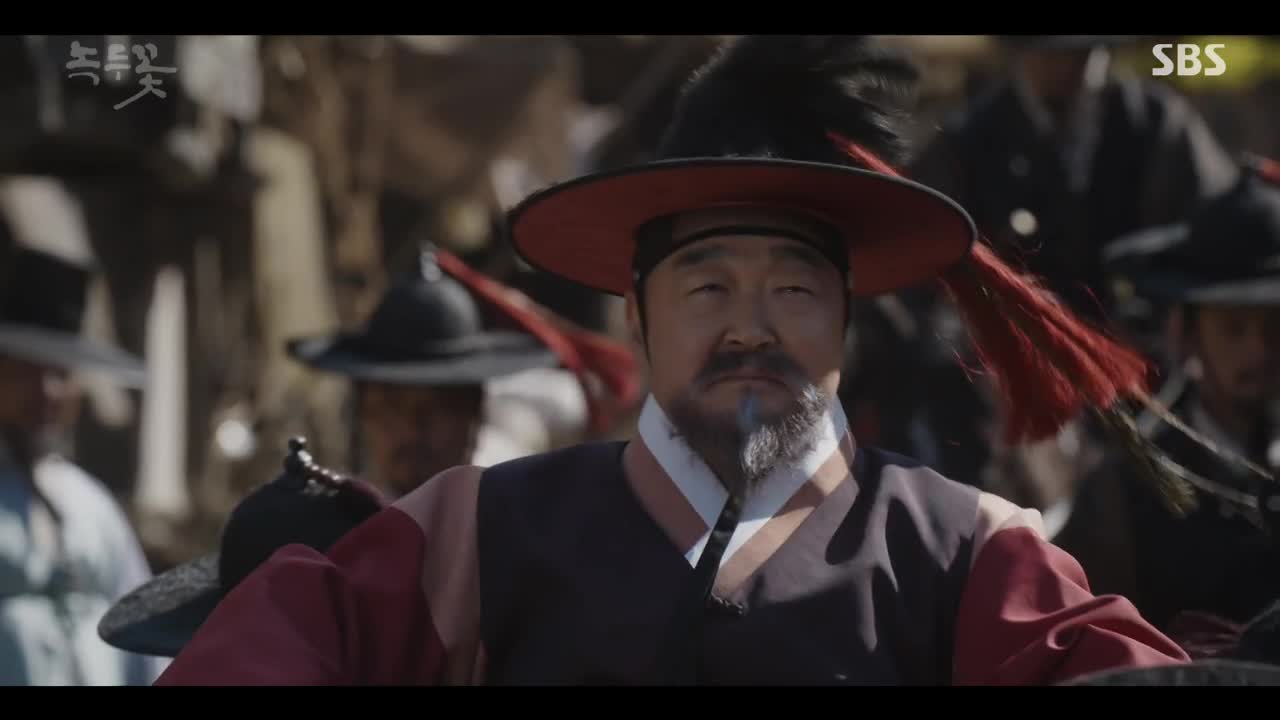
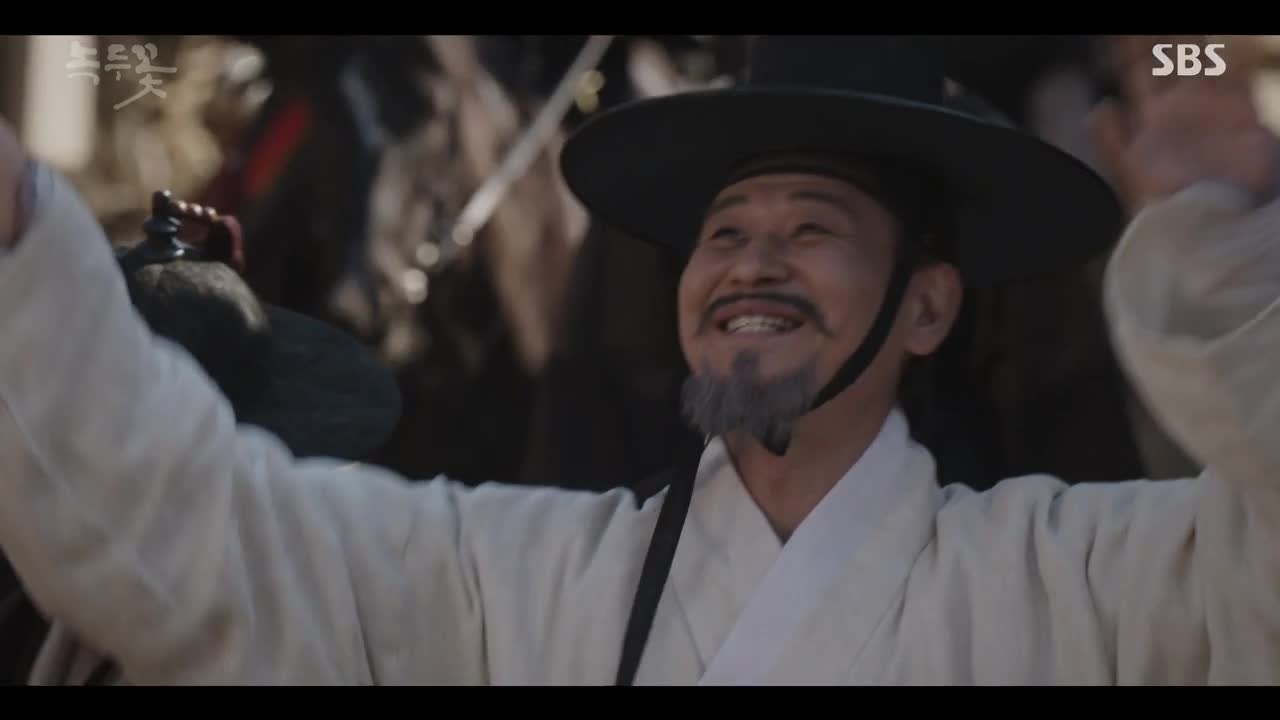
But thanks to some intel from one of Yi-kang’s thugs, Yi-kang won’t have to resort to murder. Instead, the new magistrate is revealed to be a follower of Donghak — which is against the law. Master Baek decides blackmail will be a better option than murder. Soon old Magistrate Jo is returned to his place, much to the townsfolk’s confusion and horror, since this means the ban won’t be lifted after all.
Realizing the consequences for her rice export business, Ja-in decides to take the copy of the Sabal Tongmun to the magistrate’s office. Since the Donghak members vowed to kill Magistrate Jo, then maybe out of gratitude he’ll remove the export ban once she hands over a list of all their names.
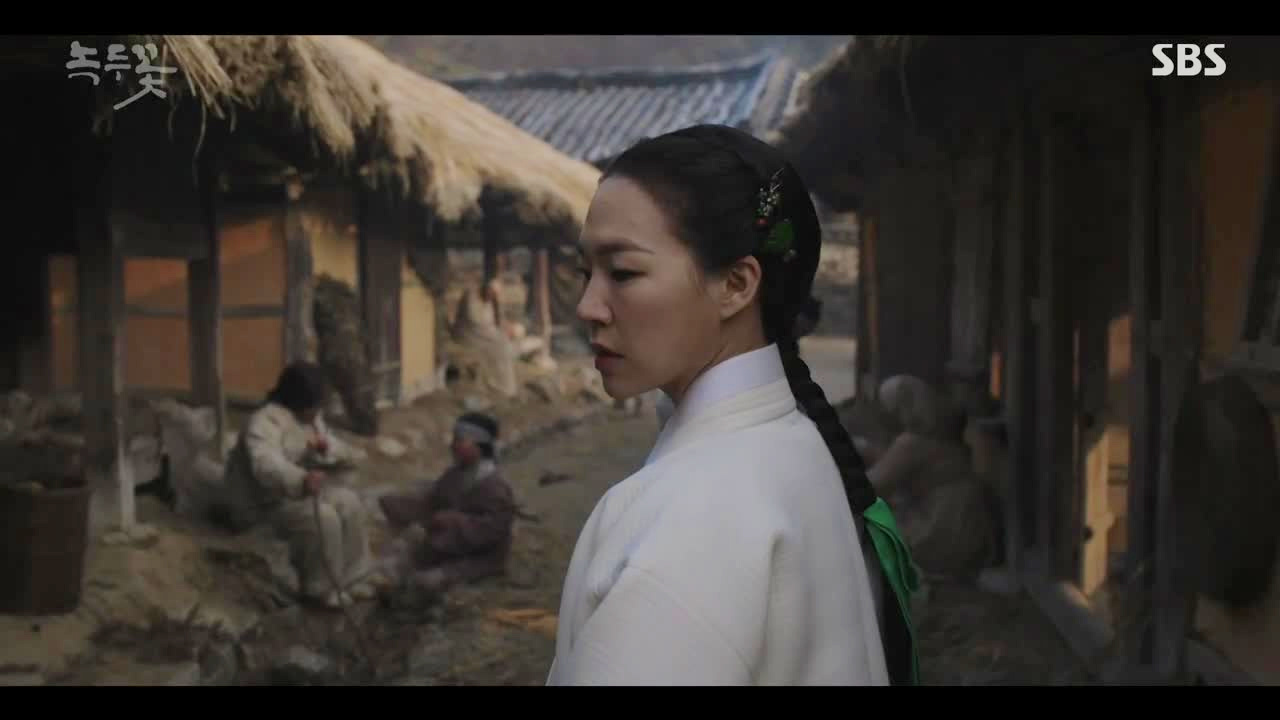
However, as she’s walking to the government house, she pauses to take in all the poor and starving townspeople suffering around her. It’s in direct contrast to the governmental officials, who are laughing and feasting in excess, without a care in the world. Ja-in stares at officials in disgust.
Yi-kang discovers that the person who tipped off one of his men about the Donghak magistrate seems to have purposefully done so. Why would a member of Donghak tattle on the magistrate also being a part of Donghak, when controlling the magistrate office means that Donghak could control the town?
To get Magistrate Jo back, and to start a revolution, that’s why.
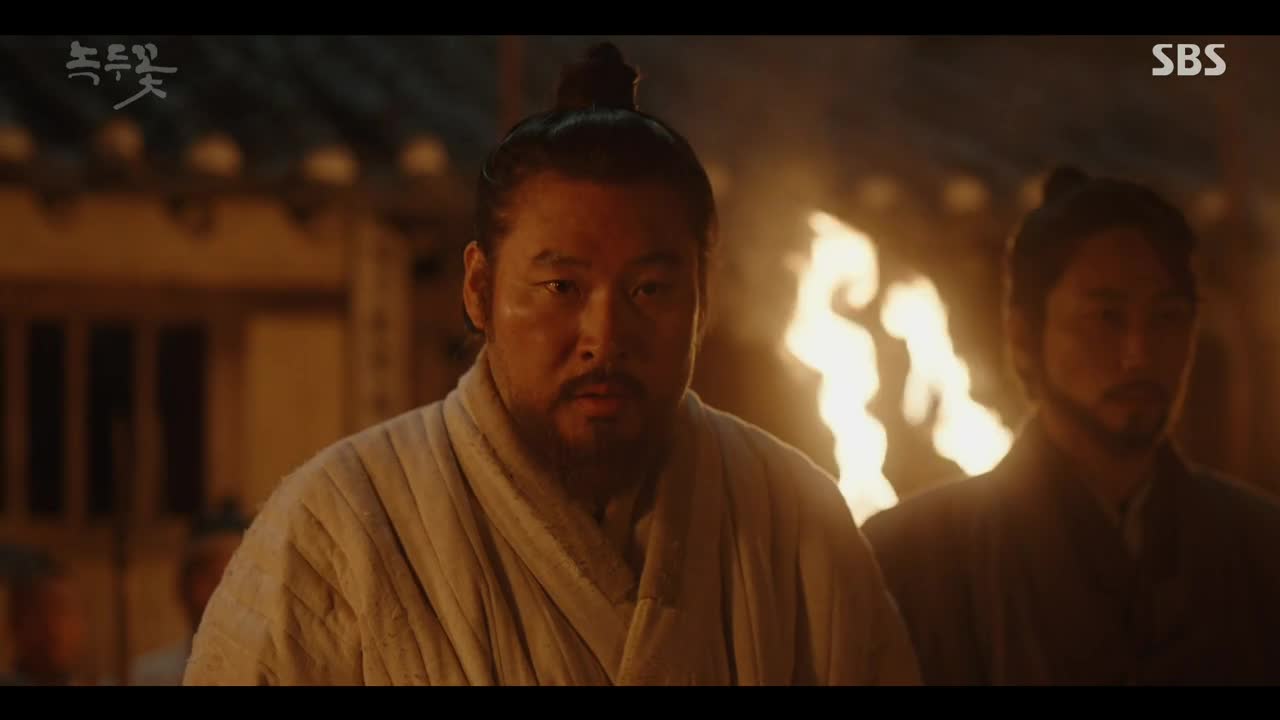
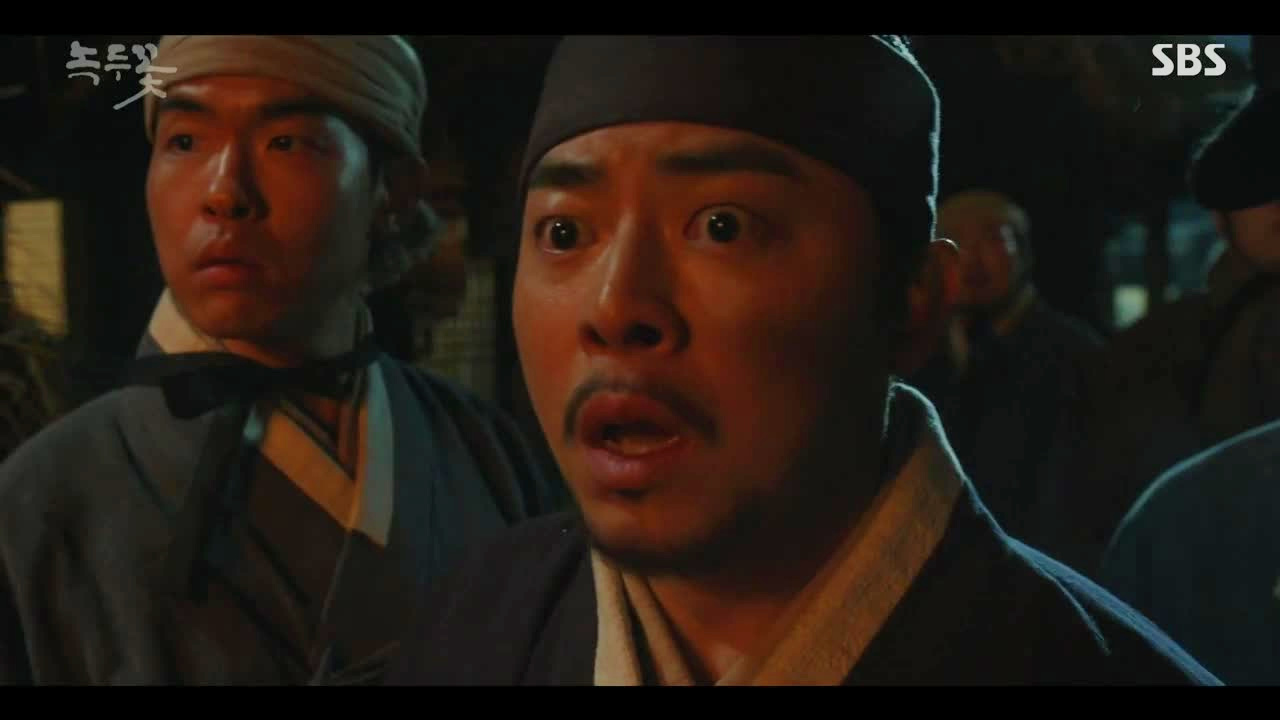
Yi-kang and his men run about the town, looking for Bong-soon, but the chaos of the New Year celebration hides the fact that the Donghak rebels have gathered together. By the time Yi-kang and his thugs find them, the Donghak followers — along with the townspeople — are prepared to fight.
Bong-joon stands in front of the men and women in the marketplace, telling them that they must behead the evil government that has profited off the people’s pain and hard work. He vows: “Rice to the people and death to the corrupt officials.”
With that rallying statement, the Donghak members walk to the government house, which is in a uproar since they got a warning about the upcoming riot. Yi-kang hurries back to the government house, telling his men to barricade the door. Following Bong-joon, the people of Gobu repeat the cry: “Rice to the people! Death to the corrupt officials! Let’s go!”
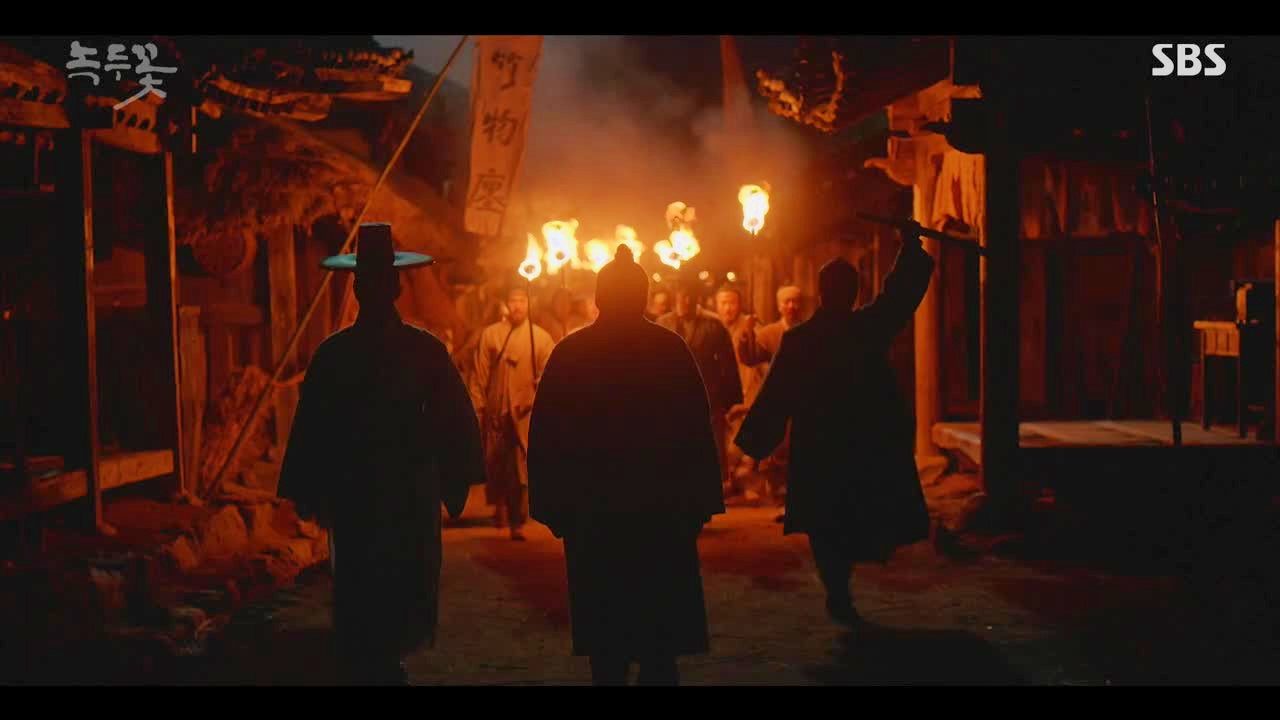
COMMENTS
I expected this to start with a bunch of backstory about the brothers when they were children (like I’m used to for most sageuks), so I’m pleasantly surprised that the plot wasted no time in getting us to the first uprising. I’m curious how closely the story will hew to the historical truth — Bong-joon was indeed the main leader in the Donghak Peasant Rebellion, and they first attacked Gobu on Janurary 10th, 1894, as depicted at the end of the episode. Also Magistrate Jo was indeed the reason for a lot of pain with his terrible taxation laws.
But I very much doubt Yi-kang, Yi-hyun, and Ja-in were real, and since the story is about them, I’m assuming there will be some historical inaccuracies. I don’t mind, though — as long as the overall story is satisfying, I won’t quibble about the historical details. Although it does make me laugh that Bong-joon’s nickname was the titular “Nokdu” (“mung bean”) because of his small stature, and, well, Choi Moo-sung ain’t no mung bean.
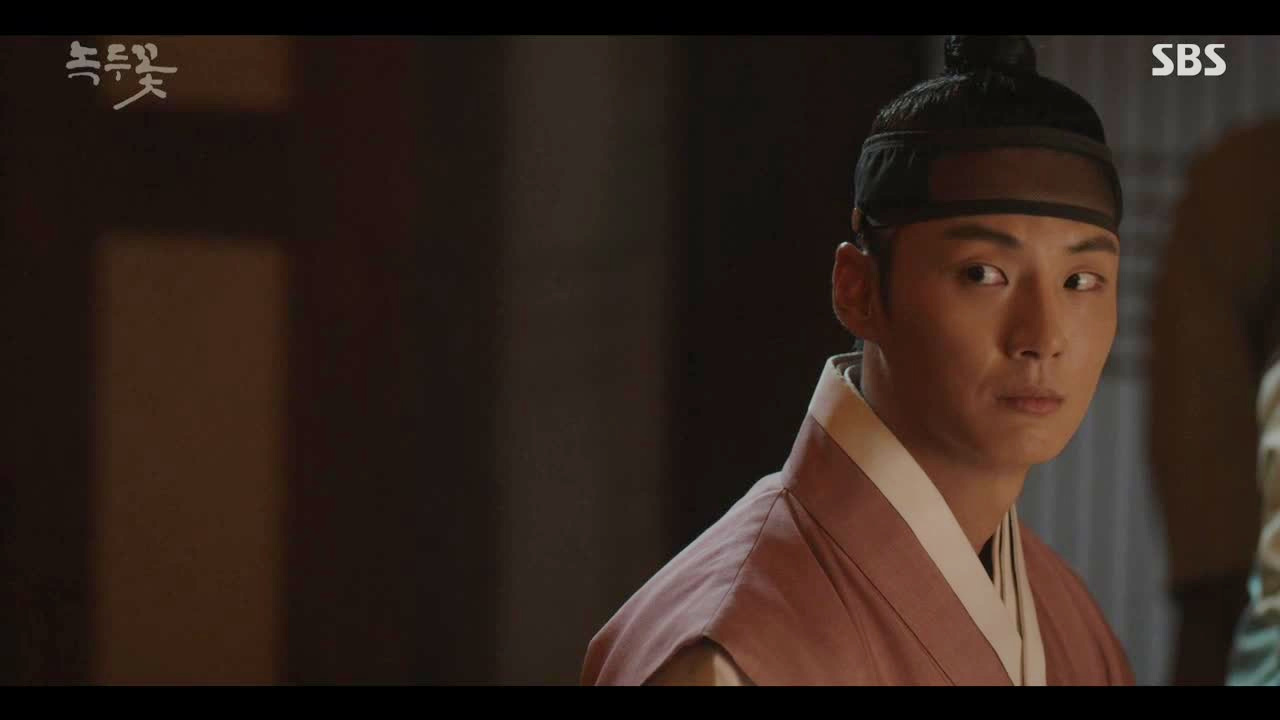
Discounting any potential historical inaccuracies, I’m impressed that in just one hour, we can sense the relationship between the two half-brothers. It’s never overtly said, but Jo Jung-seok and Yoon Shi-yoon are such talented actors that they don’t need to say everything — the glance here and there, the faint change of expression on their faces, something that small tells me more than enough. I get the feeling that they were close when they were growing up, and that Yi-hyun was always more comfortable hanging out in the kitchen than being the “young master” of the house. I’m assuming that it’s when Yi-hyun went away for school that things started to change — that’s when Yi-kang was forced to live out the fact that he’s nothing than a mere servant, a tool to use to improve the Baek family fortune and circumstance.
Yi-hyun seems pleasantly idealistic — wanting to bring modernism to his country and see the people treated with respect. You’d think he’d be an ideal candidate for the Donghak philosophy, but we know that Yi-hyun and Yi-kang will go against each other during this revolution, and it won’t be on the sides that they seem to be on right now. I’m excited to see how their characters grow and shift (although I am already grieving the fact that the brothers seem like they’re forever going to be on opposite sides, since I just want them to be happy together already!).
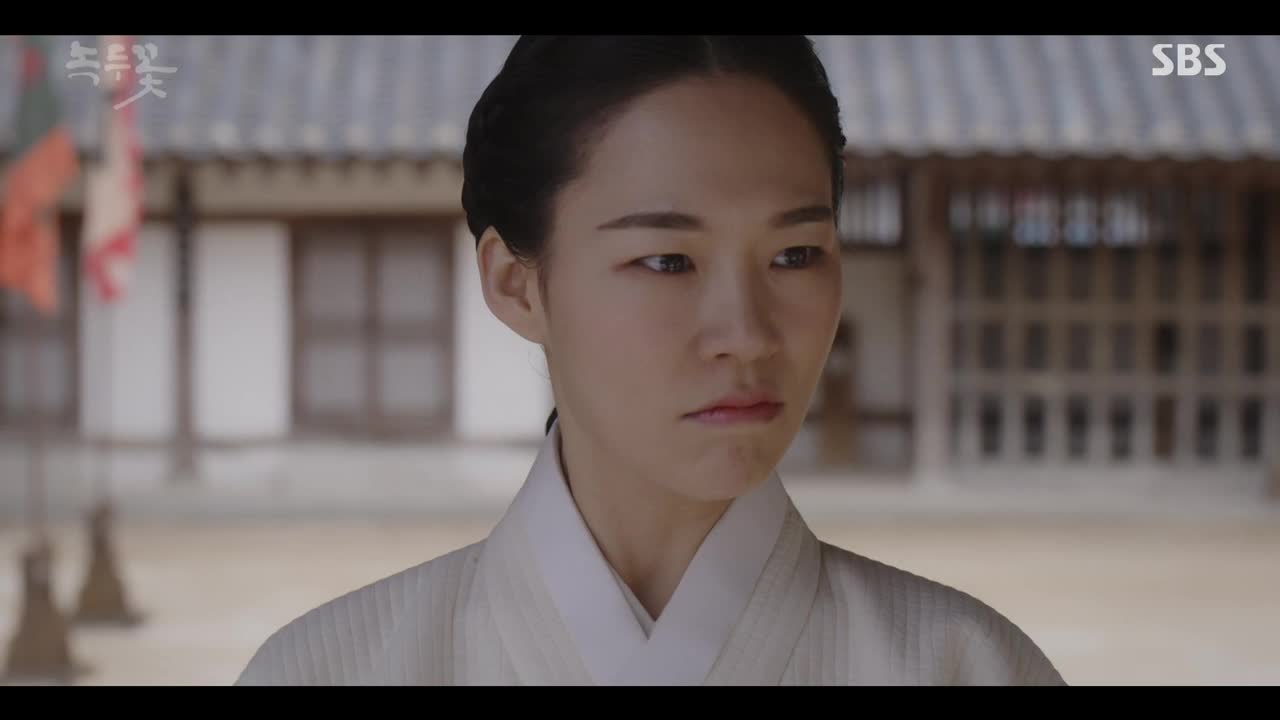
As for Ja-in, I’m already at Deok-ki levels of devotion. She’s smart and fearless, and despite what she wants everyone to think, she’s not a total heartless business woman who’s only focused on her bottom line. Sure, she’s worked hard to build her business to where it is today, but she’s not blind to the plight of those around her. She’s nowhere near as idealistic as Yi-hyun, or as brutally cold-hearted as Yi-kang — she’s somewhere in the middle. Pragmatic, but with a conscience.
The stage has been set, and I’m enough of a masochist that I’m looking forward to all the pain we’ll go through as the people free themselves from their corrupt government. Alas, we know what really happens in the end, but for now, I will live in the nokdu fields, burgeoning with the blossoms of hope.
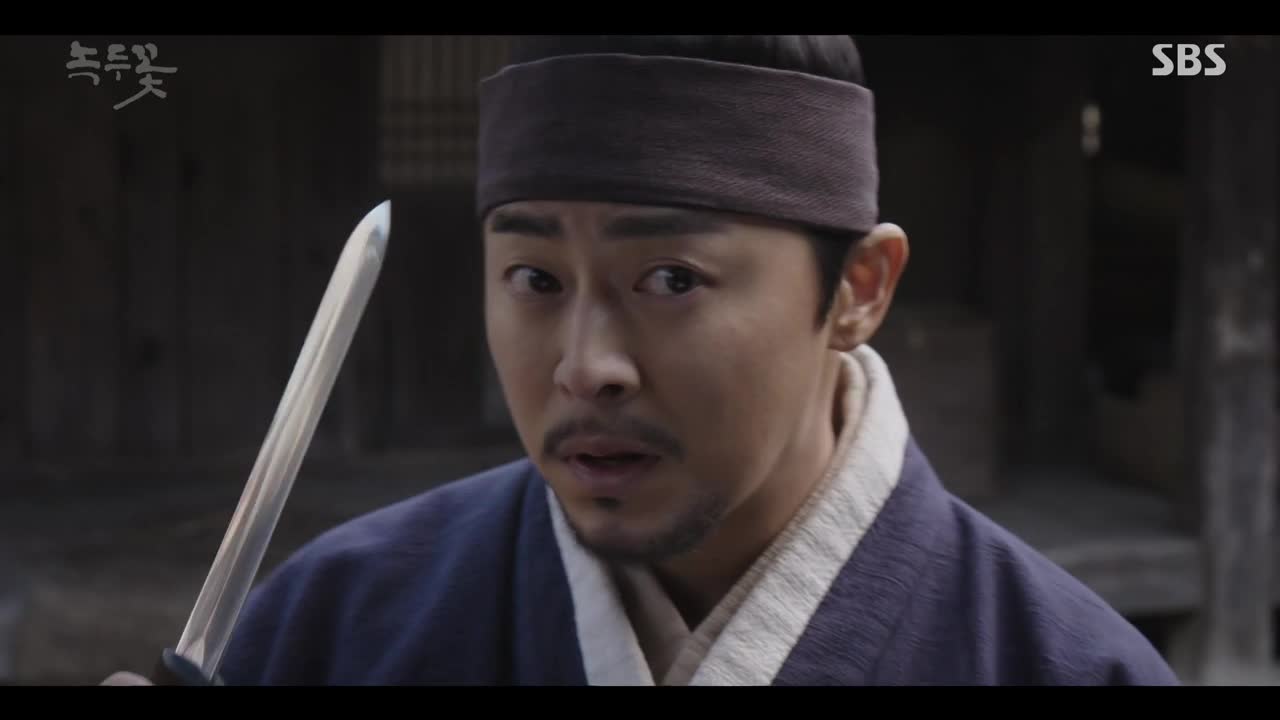
RELATED POSTS
- Premiere Watch: Nokdu Flower
- Character posters for SBS sageuk Nokdu Flower
- Yoon Shi-yoon taps into his dark side for SBS’s Nokdu Flower
- The yangban, the merchant, and the rebel leader in SBS’s Mung Bean Flower
- Jo Jung-seok becomes a rebel leader for SBS’s Mung Bean Flower
- Choi Moo-sung, Byung Heon joins Jo Jung-seok in SBS sageuk
- Jo Jung-seok, Yoon Shi-yoon offered brother roles in SBS sageuk
Tags: Choi Moo-sung, featured2, first episodes, Han Ye-ri, Jo Jung-seok, Nokdu Flower, Park Hyuk-kwon, Yoon Shi-yoon

![[Beanie Review] The Judge from Hell](https://d263ao8qih4miy.cloudfront.net/wp-content/uploads/2024/09/TheJudgeFromHell_reviewb.jpg)
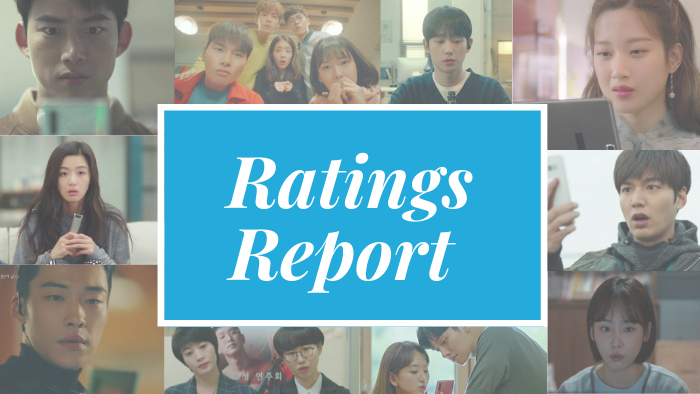



![[Drama Chat] The most overrated drama, according to you](https://d263ao8qih4miy.cloudfront.net/wp-content/uploads/2017/11/theme_alternategoblin4.jpg)

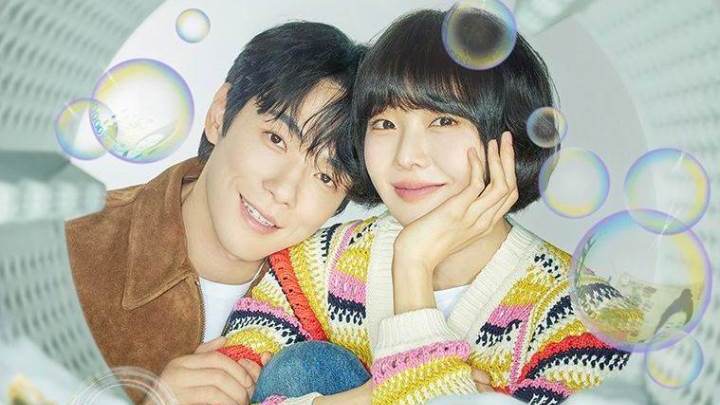

Required fields are marked *
Your email address will not be published. Required fields are marked *
1 sparks121
April 29, 2019 at 10:17 AM
Hopefully having this on the friday-saturday slot will give it more exposure. Still bitter about haechi being on the insanely competitive mon-tue timeslot where there seems to be 1000 dramas and variety shows airing at the same time.
Anyways, thanks for the recaps! Can't wait to give this a go when finals are over.
Required fields are marked *
kiara
April 29, 2019 at 11:09 AM
I hear you about HAECHI. I'm still rooting for it to at least end with a double digit.
NOKDU has no competition on Friday but I think it overlaps with 2 or 3 other dramas on Saturday. Then there is ENDGAME breaking records in Korea last Saturday and NOKDU's rating dropped quite a bit.
Anyway, good-luck with the finals!
Required fields are marked *
ohduhree
April 30, 2019 at 6:41 AM
I'm slightly happy to hear that Endgame probably was the reason for Nokdu's ratings drop.. Cause the drama so far has me on edge. I feel like I'm in for an epic ride. Hoping for better ratings for the episodes to come!
Required fields are marked *
kiara
April 30, 2019 at 7:30 AM
Probably had very little to do with it but here is hoping it'll be back to double digits this weekend.
Required fields are marked *
신류지
April 30, 2019 at 9:02 PM
HA! I'm sorry but I snorted out laughing when I read that the Endgame affected Korean dramas' ratings. That's actually kind of amusingly funny
Required fields are marked *
kiara
May 1, 2019 at 6:56 AM
Fact: Saturday was the highest single-day grosses by a movie ever in Korea.
But like I said above, it probably had very little to do with the ratings.
Required fields are marked *
2 shach
April 29, 2019 at 10:37 AM
I really enjoyed first episodes, and I'm not into historical dramas, but loved how fast plot was developed, how sharp main characters are painted, they are all interesting and that we not spend hours in palaces on political discussions. Love Han Yeri, she looks fabulous in hanbok, and is fierce without being "in your face" loud.
Required fields are marked *
kiara
April 30, 2019 at 8:37 AM
I love how the focus is going to be on the common folks for once. I've had enough of the crappy incompetent self serving monarchs of this time period.
Han Ye-ri honed her skills in films. She is more restrained if that make any sense.
Required fields are marked *
shach
April 30, 2019 at 10:40 AM
It is, good writer understand that strong character don't need to be loud and brash, and good actor know how to portrait it. And Han Yeri definitely is good actress.
Stories of kind and noble future kings don't appeal to me, because history show that "good" kings need to be ruthless, or have someone to be ruthless in their name.
Required fields are marked *
PakalanaPikake
April 30, 2019 at 4:03 PM
@kiara, @shach,
I'm right with you re: sageuks about the hoi polloi for a change. I feel as if I've slid from HAECHI, which has a core group of non-yangban who work with and support a half-royal prince, smack into NOKDU, which has rural scholars, impoverished minor yangban, and lots of slaves, commoners, butchers & other untouchables. Oh, and an infestation of extortionistic magistrates and other local and provincial officials. Plus a tiny middle-class of traders and business owners.
I'm getting vibes of DAEMANG / GREAT AMBITION and SHINE OR GO CRAZY when it comes to businesswomen.
Required fields are marked *
3 WaterBottle
April 29, 2019 at 10:39 AM
This was the best drama opening I've seen in god-knows-how-long. It was gripping from beginning to end. Every scene had its place and none of them overstayed their welcome. This episode came close to movie quality in terms of time management. Not to mention atmosphere. A-ma-zing.
Required fields are marked *
frabbycrabsis loves KBS Drama Specials
April 30, 2019 at 2:36 AM
It's unbelievable - I wasn't bored or confused for a second!
Required fields are marked *
4 kiara
April 29, 2019 at 10:41 AM
@odilettante
Woot! Thank you so much for the thoughtful recap <3.
"But I very much doubt Yi-kang, Yi-hyun, and Ja-in were real.."
I don't think so either but a writer with Jung Hyun Min's skill is not going to fictionalize the actual history. That's why I trust him.
Required fields are marked *
5 PakalanaPikake
April 29, 2019 at 12:52 PM
Thank you so much for recapping NOKDU FLOWER, @odilettante! I've been awaiting this with great anticipation. The opening installment is truly satisfying, even though I’ve only seen it without subtitles so far. As I expected, the performances by the leads and supporting cast are top-notch.
The opening scene is reminiscent of the desolation in KUNDO: AGE OF THE RAMPANT.
Like you, I had to chuckle at the idea of Choi Moo-sung as a "peanut," the modern American equivalent of a "mung bean." In real life, he's actually a skosh taller than all three of his Baek adversaries. LOL!
Dang! Yi-kang is called “geoshigi.” @laica and I discussed this bit of Jeolla Province satoori that also cropped up to hilarious effect in TOP STAR YOO-BAEK and ONCE UPON A TIME IN A BATTLEFIELD. In this case, it’s not so funny. It’s akin to Hong Gil-dong’s father in REBEL being called Amogae, an indifferent non-name for a slave who is lower than a human being. Or incognito Goguryeo prince Moo-hyul (“soul-less,” IIRC) in KINGDOM OF THE WINDS.
See last two paragraphs:
http://www.dramabeans.com/2018/12/team-dramabeans-what-were-watching-135/comment-page-2/#comment-3370905
http://www.dramabeans.com/members/pakalanapikake/activity/665842/#acomment-678628
I appreciate NOKDU FLOWER's use of satoori for historical accuracy. It also underscores the grassroots provincial origins of both Donghak and the commoners’ demands for relief from predation by corrupt officials. I enjoy hearing how it differs from Seoulese.
Now off to check out the penultimate episode of HAECHI, in which a different kind of rebellion has just been quashed. ;-)
Required fields are marked *
kiara
April 29, 2019 at 1:56 PM
@pakalanapikake
Oh man this drama is a feast for the mind, eyes and heart. I've read so many articles on the Donghak Rebellion while listening to different versions of the OST (Bird Bird Blue Bird) in the background. I love them all but Forestella's version is perfect for the drama. It's just epic and maybe because this folk song it's not meant to be sung alone.
Han Ye-ri was also in KUNDO so our girl have been in a couple of rebellion based sageuks before NOKDU.
(trying to unsee Ha Jung-woo's bald head lol).
I can only "kind of" tell the different dialects when I watch it without subs. Han Ye-ri seems to be rocking it just as the writer have said.
Did you read anything on the Sabal Tongmun? The circle with their names written around it kind of reminds me of King Arthur's round table. A symbol of equality perhaps? IIRC the Donghak founder Choi is said to have borrowed from Western religion.
Required fields are marked *
PakalanaPikake
April 30, 2019 at 11:57 PM
Part 1 of 3
@kiara,
I agree that Forestella's rendition of "Bird, Bird, Blue Bird" is epic. It reminds me of the male choral version of "Muyiyiya" in SIX FLYING DRAGONS, and Amogae's lower-key rallying song for the Noisy Hongs, "Spring of Ikhwari" (REBEL, OST Part 7):
https://www.youtube.com/watch?v=Mwu6Jm7qYlg.
As for satoori, I now have “geoshigi” on the brain and can recognize it in dialogue. Other than that, I can hear the difference in pronunciation of words I've heard often in Seoul-based dramas. That doesn't mean I understand them. I just discern the different phonemes, rhythms, and inflections. I have no idea where speakers might be from unless I read it in a review or recap. ;-)
The only information I recall reading about the Sabal Tongmun is here:
https://en.wikipedia.org/wiki/Donghak_Peasant_Revolution.
I had a feeling of deja vu as I watched the scene of the Donghak adherents signing the manifesto. I recall the “autograph in the round” session in another production. It must have also been shown in MR. SUNSHINE. I had to marathon that show about half-way through, so I didn’t see the recaps or comments thereon until I caught up. Does this ring a bell?
I agree that the circular arrangement of signatures does conjure up King Arthur's Round Table. Although in this case it's more so that no one person can be singled out as the ringleader because they signed first. It sounds like a variation on Benjamin Franklin's witty but deadly-serious reply to the president of the Second Continental Congress during the signing of the Declaration of Independence. John Hancock is renowned for the bold flourish with which he signed the document. To this day, “to put your John Hancock on something” means to sign it. The signers knew only too well that if the revolution failed, they would all be hanged, drawn, and quartered for treason.
https://www.smithsonianmag.com/history/benjamin-franklin-joins-the-revolution-87199988/
- Continued -
Required fields are marked *
PakalanaPikake
April 30, 2019 at 11:59 PM
Part 2 of 3
As for Donghak, I’ve read that it was originally a reaction specifically against Catholicism, which was one of several elements that were collectively termed Seohak:
https://en.wikipedia.org/wiki/Seohak
https://en.wikipedia.org/wiki/Donghak
See also: https://en.wikipedia.org/wiki/Cheondoism, which notes that as Donghak evolved into Cheondoism, it incorporated Korean shamanism (Shindo) and elements of Taoism and Buddhism.
- Continued -
Required fields are marked *
PakalanaPikake
May 1, 2019 at 12:01 AM
Part 3 of 3
https://en.wikipedia.org/wiki/Korean_shamanism
I’m having a hard time wrapping my head around the rejection of Western philosophy and Catholicism, which was viewed as a modification of Buddhism (!), while Protestant Christianity was later accepted in Joseon, along with democracy – a Western concept that evolved in ancient Greece. I would have expected them both to have been considered disruptive of the Neo-Confucian social order in the same way Buddhism and Catholicism had been earlier. I’m having a hard time grokking this. Perhaps it was a sign of the times. The Zeitgeist had moved on, and perhaps towards the end of the millennium, more Koreans were able to accept the implications of democracy. It also occurs to me that the Protestant doctrine of predestination might have been welcomed among the middle class and better-off peasants, especially the notion that material prosperity was a sign of God’s grace. I also can’t help but wonder if the Protestant work ethic is a factor in the incredibly long hours that so many Koreans work nowadays – aside from the high cost of living and the proliferation of low-paying jobs.
Required fields are marked *
PakalanaPikake
May 1, 2019 at 12:05 AM
Yo, @kiara!
May Day is Lei Day in Hawai'i! Have a good one! ;-)
Required fields are marked *
kiara
May 1, 2019 at 5:39 PM
Happy Lei Day :).
Required fields are marked *
fan
April 30, 2019 at 3:05 AM
About Choi Moo-sung as Jun Bong-joon- I was thinking about Jung Do Jeon this writer's past drama. I thought Ahn Jae-mo who played Lee Bang-won in JDJ would be great for Jun Bong-joon role. Jun Bong-joon was 40 years old when revolt occurred. Actor Ahn is 40 years old and he is short (compared to Choi Moon-sung who is 12 cm taller and 51 years old) and has charisma (Rustic Period).
Required fields are marked *
kiara
April 30, 2019 at 7:53 AM
Ahn Jae-mo and the RUSTIC PERIOD (2002) <3. Sometimes I feel like an old ajumma lol. Thanks to my fave sub squad for going back that far to sub those gems.
I totally agree! Ahn would have been great too. His Lee Bang-won is one of my favorites.
I blame writer Jung for not bringing him back. He was awesome in JDJ.
Required fields are marked *
shach
April 30, 2019 at 10:46 AM
I was shocked when I found out that Choi Moo Sung is 51yrs old, he looks easily 10yrs younger, which is feat, because usually actors tend to look way beyond their years once they hit 30s (all that unhealthy lifestyle, dieting , hectic working hours taking toll).
Required fields are marked *
PakalanaPikake
May 1, 2019 at 1:23 AM
I think that having some meat on his bones makes a difference. So many actors look drawn, and thus older, because they're so thin. Perhaps he's a non-smoker, too.
Required fields are marked *
6 Lord Cobol (Kdramas, like water, flow downhill)
April 29, 2019 at 2:49 PM
First week wasn't bad, but I'm still likely to drop this unless I can't find anything else to watch. Any historical show from this period is likely to have a really sad ending if they try to stay accurate. I don't love sad endings or historical inaccuracies, so...
Required fields are marked *
Linda Palapala
April 29, 2019 at 3:02 PM
To quote my daughter..."Is it historical?" Me: "Yes". Her: "Then they're dead..."
Required fields are marked *
7 phoenix220
April 29, 2019 at 7:19 PM
oh, I was so excited for this thinking it was the Nokdu Jeon with Kim So Hyun! But this is much better, I love all three actors and have really missed seeing Han Ye Ri in sageuk! Gonna look forward to this after finishing my finals (in a week, yay!)
Required fields are marked *
8 dramamad
April 29, 2019 at 7:34 PM
The first episode had me hooked! I loved the second one even more.
Required fields are marked *
9 DramaAddict
April 29, 2019 at 8:12 PM
Where is everyone watching this show? I want to watch it but have no idea how...
Required fields are marked *
ebichu
April 29, 2019 at 10:22 PM
I know it's available on Kocowa right now (for US viewers), which is where I'm watching it... and I'm guessing it *might* be available on Viki later.
Required fields are marked *
Linda Palapala
April 30, 2019 at 7:35 AM
Are you paying for Kocowa? I don't want to pay for both Kocowa and Viki.
Required fields are marked *
kiara
April 30, 2019 at 7:59 AM
Yes, the cast were doing a promotion for Kocowa.
https://www.youtube.com/watch?time_continue=3&v=yXpePXHFg4c
Other than Kocowa, I don't think there is any other legal sites with NOKDU.
Required fields are marked *
Linda Palapala
April 30, 2019 at 9:26 AM
If you understand or speak Korean, it's on OnDemandKorea.
And they wonder why people use illegal sites.
Required fields are marked *
kiara
April 30, 2019 at 9:33 AM
Because it's free and not every legal sites are accessible to every country.
miss h
April 30, 2019 at 11:01 AM
I watched it with English subs for free on ODK even though it's under one of their subscription plans. Don't know when they will lock it.
BTW I didn't know ODK made a deal with Kocowa too. Everything used to be free and now they basically have the same subscription plans as Viki for Kocowa content.
Linda Palapala
May 1, 2019 at 11:41 AM
Yes, ODK does have the first two episodes with English subtitles, which is very unusual for current shows. I watched parts of it, then went "meh".
Linda Palapala
April 30, 2019 at 9:29 AM
I watched your youtube link and the most noticeable thing was the new hairstyle for men these days: parted either in the middle or slightly to the side and permed.
Required fields are marked *
shach
April 30, 2019 at 10:52 AM
I would sooo happy if bowl cut finally fell out of fashion.
ohduhree
April 30, 2019 at 10:12 AM
If you're from Hongkong, Malaysia, UAE, Philippines, etc. VIU is one site where you can watch dramas legally. Nokdu is available there too. Enjoy!
Required fields are marked *
10 greentealatte
April 30, 2019 at 5:44 AM
Thank you for recapping this @odilettante. This is a fine premier, the tale flow smoothly, the background laid clearly and when I realized, an episode has breezed by. Looking forward to episodes 2
Required fields are marked *
11 ohduhree
April 30, 2019 at 6:48 AM
I was also pleasantly surprised to have the first hour jump right into the heart of the uprising. I was thinking it's gonna take us what 8 episodes long childhood backstory but no! I'm happy that we were able to see the relationships of the main people right away. YSY's acting is so controlled in this. Not in a bad way, but it makes me anticipate his character's transformation. JJS too, he's always amazing. And I can already see sparks between our leads. They got chemistry! I'm not hoping for a full focus on romance but hopefully we'll have a fair share. Romance in sageuks done right are deeply moving.
Required fields are marked *
12 Abbie
May 1, 2019 at 9:59 AM
As much as I love both lead actors, I don't think I could take either of them being on the "wrong" side, especially Yoon Shi-yoon. Sadly I may have to pass on this.
Required fields are marked *
Linda Palapala
May 1, 2019 at 11:40 AM
Your statement makes no sense to me.
Required fields are marked *
amara
May 3, 2019 at 8:36 PM
like having to see an actor play someone you hate or dont agree w/ (i.e. ysy bc he's pro capital that hurts the peasants)
Required fields are marked *
13 amara
May 3, 2019 at 8:30 PM
general i do not like period dramas but i love jjs and i am fascinated about this (i mean like....the proletariat. of course) but i am worried about how it will come out. i hope the story is good? i'm gonna read the comments here to get more of an idea of what people think
Required fields are marked *
14 gadis
May 4, 2019 at 7:25 AM
I was surprised to know that we immediately jumped into the meat of the story instead of spending some eps on long backstories as per usual. Choi Moo-sung is very charismatic as the titular rebel leader. And my heart is already breaking for the Baek brothers, who clearly loved each other deeply despite their very different status. Knowing that they'll stand on opposite sides in this rebellion just make it that much more tragic.
Required fields are marked *
15 bong-soo
May 9, 2019 at 4:25 PM
Thank you @odilettante for recapping NOKDU FLOWER. I am slowly getting caught up with the recaps.
This was an excellent opening episode. A lot was covered in the first hour. All the leads were impressive.
O/T. Oh Jang Gwang. What happened? I want to remember you as Eunuch Jo not Magistrate Jo.
Required fields are marked *
16 Goldpen
August 13, 2019 at 2:20 PM
Almost finish will review shortly.
Required fields are marked *
17 javinne
May 18, 2020 at 4:03 AM
I have just started to watch this drama alongside with my sister and my best friend, who are both in different countries (not important) but the thing is: no, @odilettante, I don't "know what really happens in the end" because I don't know Korean history, and yet, I bet for a sad ending.
Thanks for the recap, although late.
And bring it on!
Required fields are marked *